#nature symbolism is so much fun i would actually love to write an essay
Explore tagged Tumblr posts
Text
No babe I'm fine, definitely not thinking about how snakes are a creative life force and Callum has been shown to be creative in art and Claudia is creative as in an outside-the-box thinker, and for sure not thinking about how Callum kills snakes but Claudia creates and kills them (chains -> snakes in season 1, can't remember the specific episode, and turning her legs into a snake tail). And it's not like they're both becoming worse versions of themselves but Claudia is definitely not healing that leg, and it's not like she transforms herself a t a l l AND IT'S NOT LIKE SHE MADE SOMEONE COME BACK FROM THE DEAD-

#nature symbolism is so much fun i would actually love to write an essay#snakes#hisssss#ps in greek mythology snakes were symbols of athena#and when they hissed it was said they were whispering secrets from the earth#and its not like claudia literally had someone whispering in her ear abt how to bring viren back......#i'm so normal and fine you guys#tdp#symbolism#the dragon prince#callum#claudia#opposites but in a samesies kinda way#callum & claudia foils#here. as a treat.#callum and claudia angst but not in a shippy way
15 notes
·
View notes
Text
August Wrap-Up
August was a bit like July. I wrote more than I thought I would. Slowly easing back into Heist. Actually feel like I’m getting somewhere again. Also it helps that I’m not holding myself accountable to have “[so many] chapters done by [date]” it’s more like “I will write/edit for at least 30 minutes every day and see how that goes.” And it’s working really well for me right now.
Still no move. Still no luck with job applications. Not much to say there because it’s depressing.
📺On the Screen📺
So we watched Dungeon Meshi/Delicious in Dungeon. And that was fantastic. I knew I was gonna like it. I did not realize how much I was going to like it. I loved watching something that talked about diet serving you and your body, not trying to push yourself into something that’s ultimately bad for you. I loved watching everyone’s particular brand of autism. The magic system. The worldbuilding. The general symbolism I could write essays on it.
Marcille is, unsurprisingly, my favorite. You had me at “elf mage” to be honest. But also the way she approaches magic. The reason she does the things she does. Her propensity for “blow it up first, ask questions later.” Her particular brand of necromancy :) I just love her. I think one of my favorite parts was when they were fighting the red dragon and Laios told her to blast him up to the dragon’s face using only Senshi’s shield as protection and she balks a bit but then she does it. The two of them are matched crazy for crazy in the best way.
I’m slowly working my way through the manga now to see what happens next. I am mad that we didn’t get the bit about Marcille’s hair during the ritual but otherwise I’m loving how faithful the anime adaptation is. Looking forward to Season 2!
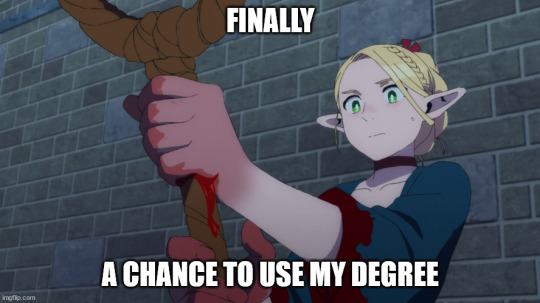
🎮With a Controller🎮
Technically, mouse and keyboard, but still. Continuing my run of Dragon Age: Origins. I keep binge playing it off and on. So I’m only about halfway through. I’ve finished Ostagar, done the Brecelian Forest, the Circle Tower, and Redcliffe through saving Connor. I’m now questing to find the Urn of Sacred Ashes.
I’m also going through a bit slower because I’m sorta-kinda writing down events as they happen for that theoretical Origins fanfic I keep telling myself I’m going to write. But I actually have more substance to it this time. (Oh yeah I did mention this last month. So yeah, it’s still happening.)
Also the brainrot of “Delicious in Dragon Age” happened and I was thinking about a blend of the two. Have I actually gone anywhere with this? Nope! But it sure was fun to think about for a few days.

(also it's so amusing when I'm on fire during a cutscene because the animation didn't stop prior to the scene starting.)
💻At the Keyboard💻
In addition to the zero draft stream-of-consciousness Dragon Age fanfic, I did put some more effort into Heist this month. Restructuring everything last month really got me going again. My total net word count for the month wasn’t very high, but that’s also because I’ve been deleting stuff that isn’t working. (Or, rather, moving it to a deleted scenes folder which doesn’t impact my total word count in Scrivener.)
But yeah, Chapter 27 got half rewritten to set up my new stakes. Then, naturally Chapter 28 needed edits to reflect that. Chapters 29-30 actually were mostly unaffected. But then Chapter 31 needed edits, Chapter 32 needed the major conversation in the second half entirely reworked, and Chapter 33 needed to be reworked tonally. Chapter 34 was entirely new, but it fit in and filled a hole nicely. The latest thing I’ve done is change the POV for Chapter 35, which I’m almost done with. There’s now going to be 48 chapters according to my most recent outline and hopefully I’m still under 110k words when I’m done. (Previous draft was 60 chapters and 106k words.)
But word count is actually not something I’m generally thinking about at the moment. I’m trying to get it all on the page. Ideally, by the end of this month I’ll be nearing the end of this draft. It’s the stretch goal, but I’m not going to beat myself up over it. 30 minutes a day minimum, we’ll see where that gets me.

More rambling about Heist under the cut:
The Needed Changes: (as of right now) Chapter 35 - POV shift that I’m still working on Chapter 36 - will need minor edits Chapter 37 - needs to be entirely redone Chapter 38 - I have a framework but the stuff I’ve changed will mean major edits Chapter 39 - taking bits and pieces from other chapters from the previous draft for an effectively brand-new chapter Chapter 40 - similar case as Chapter 39 Chapter 41 - framework there, but will need major edits to reflect previous changes Chapter 42 - moderate to major edits Chapter 43 - major edits Chapter 44 - moderate to major edits Chapter 45 - major edits Chapter 46 - major edits Chapter 47 - major edits Chapter 48 - mostly all good, but will need minor to moderate edits Anyway, here’s to getting further in this draft and getting it out to beta readers within a month or so!
2 notes
·
View notes
Note
RANDOM QUESTION OUT OF THA BLUE BUT!!! I've been thinking about what various madcom characters' fursonas would be bc i do that with all my hyperfixations and im v curious what animals youd assign them,, (especially crackpo n phoobert bc ur takes on both of them are delightful !!
OHH!!! I REMEMBER U SENDING ME A REQ ABT THIS AND I NEVER GOT TO IT BUT I REALLY REALLY WANTED TO SO IM ABSOLUTELY AT LEAST GONNA GIVE YOU AN ESSAY ABOUT IT
see the thing about this question i LOVE is that you can answer it two ways: "what the characters would say their fursona is" and "what God and everyone else knows their fursona is". "jerma you'd be a rat" vs "lion wolf hybrid king of the junjle". you get me?
we'll start with what they'd make up as fursonas- i think phobos would try to be as realistic as possible n choose a deathstalker scorpion, nd make VERY clear to specify that he has remarkably small claws (so you know how potent his venom is!!!) [scorpion venom is relative to the claw size- smaller claws = more potent venom, as they have less need to hold down their prey!]. tbf he'd probably literally just base it off one of his owned scorpions- no fancy bits n baubles attached, although he would also design UV markings [scorpions, along with many other animals glow under UV light!] for himself so the design isn't necessarily bland or lacking.
crackpot would be the complete opposite, however- he'd be too indecisive with which bird species he likes best that he'd just give up n make an every-hybrid of some manner (tho it WOULD look most similar to a vulture, i think!). he'd literally make a sparklebird. rainbow feathers, scene getup, FUCK YOU let him have fun for once in his miserable life!!! realistically unlike phobos, who cannot ever take the stick out of his ass for 2 seconds to indulge in a little whimsy, i think crackpot probably had a fursona at some point (he just kinda stopped having time to think about it after The Occurrences. you get it!)
now. as for what god and everyone else would assign them....... actually a little tougher. bc a scorpion still feels right for phobos, symbolically- the ole fable about the scorpion and the frog, y'know? DAMMIT, PHOBOS. YOU WIN THIS TIME! but maybe he'd be a species with weaker venom. Just cause. (i could be really extra mean and say pseudoscorpion but cmon man.)
crackpot on the other hand.... ive gone into such meticulous detail about the kinds of bird he could be, but the funniest part is i don't think God would let him be a bird at all. birds are something he takes great comfort in, something he wants to be-- but he's a pretender, he's always worn a mask his whole life, always wished he could be somebody else. he'd be something that exhibits batesian mimicry [batesian mimicry is when one harmless species mimics another, more threatening species]-- i think he'd be a hoverfly, a type of fly that mimics bees! alternatively he could be a salamander but i don't have cool symbolism reasons for that i just think it's right.
TLDR;
if we're talking "jerma you'd be a rat" phobos could be a scorpion or pseudoscorpion and crackpot would either be a hoverfly or salamander, if we're talking "lion wolf hybrid king of the junjle" phobos would be an ostensibly cooler scorpion & crackpot would be some kinda sparklebird.
TY FOR GIVING ME AN EXCUSE TO WRITE AN ESSAY!!!! i love prompts like this so so much plsplspls don't hesitate to send me three hundred asks of this nature I LOVE FEELING LIKE A GREEK PHILOSOPHER
8 notes
·
View notes
Note
OMG!! I just found your blog through a WBL fan sharing your post about WBL on Instagram, and I am SOOOOO happy to see that you noticed and appreciate the tutor and fighter couple from Why R U series too. If possible, please write an analysis about this couple, about any specific aspect you deem as most important or just generally, whatever you are okay with. I love reading your analysis and the insights it gives me, and I just finished binge reading all of your writings on my favorite bl (1)
Hi wow mindblown by this comment Thank you so much for letting me know that my stuff is being shared I really appreciate that and I am so grateful that you took time of your day to come speak to me. I adore Fighter and Tutor, like they’re my favourite couple ever. What happened when why r u was airing was I wasn’t yet analysing BLs at that time otherwise I would have been writing essays and essays about them. Because it’s been so long since I went back to watch them I’m going to let you see some of my drafts on how I would have broken their relationship into pieces and analysed. Because they are incredible and I really always feel sad when people see them as just like a se*ual couple when there’s more to them than that. So I will let you see the first drafts and my ideas on them through this ask and I hope that's okay for now. Maybe after my other shows I will like go back and rewatch them and start analysing more about them. If I do I’d probably do a youtube video about them because they’re so good.
Here’s some of the analysis for them that I wrote:

The theme for these two is the struggle with internalised homophobia and self-acceptance. They both had this obstacle in themselves as they fell for each other and tried hard to avoid and run away from what they felt. It’s been a long journey for them being into each other since the first time they met but not really realising what they felt. Fighter did but he went into extreme panic mode and tried to run away immediately he felt that. So he tried to stay by Tutor’s side through the teasing and bullying because Tutor made him feel great and happy always but then with pressure from his father and the path he was meant to take to keep on being seen as successful, he thought his feelings for Tutor were useless and wrong. Plus he didn’t know if it was reciprocated so that caused even more fear for him which is why he just stayed with teasing and finally kater in thinking Tutor likes Hwa he chose to pull her away from him by taking her attention but also he chose to keep what they have as enemies/haters that way and avoid being near Tutor. This is why they end up hating each other a lot by the beginning of Why R U which is like 3 years later or something after he chose to stay with Hwa.
Tutor didn’t understand fully why he got angry, jealous and annoyed, he had an inclination from the first year that Fighter liked men and he was actually hopeful about it because deep down he had feelings of wanting to also flirt with Fighter, wanting to stay with Fighter even when annoyed him and bullied him. He liked Fighter’s softness at times and he liked the way he felt even though he didn’t understand why he was so rifled and affected by Fighter’s presence when no one else has been able to do that to him before. But he became upset when Fighter chose to date Hwahwa because it was his automatic issue with IH that of course Fighter doesn’t like him but he likes girls, so he got jealous and sad and proceeded to also dislike Fighter because he had this effect on him whilst still trying to date his best friend who had feelings for Fighter.

They both have had unknowingly pent up feelings for each other, so once Fighter breaks the barrier by their first kiss, they both go into extreme panic and they both could no longer pretend any more with what they have. Which is why the first episodes they both keep struggling to keep their attraction with each other quiet because its been 3 years since they wanted each other that way. Fighter has so much pent up attraction and needs to give into his feelings that each time they have a chance to break that barrier it’s intense and crazy. Both have been longing, pining secretly for each other since the beginning of the show. What happens next is for Fighter he has to choose to finally accept that he cares a lot, a lot , a lot about Tutor, he finally starts to learn more about this person he loves and he starts to want to protect and keep Tutor happy and by his side. When it comes to finally choosing to let go of Hwa and choose to fight for Tutor and start knowing if he feels the same way. It’s a leap of faith he takes when he breaks up with Hwa. He realises he’s the one stopping his wishes from happening with Tutor because he keeps being in denial about what they are because he’s scared it’s only him that’s gay and has feelings for the other.
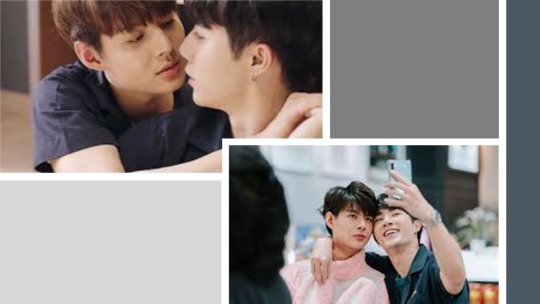
It’s only after tutor sister tells him that he’s holding back his feelings does he realise that it’s time to talk about their unstable relationship and Fighter at that moment had also come to terms with his break up with Hwa after making out with tutor revealed the truth, that’s why on the rooftop they do a test that ultimately breaks their walls down and choose to give in to their feelings no matter how scared they are about it being reciprocated. When Tutor looks away and loses the game it’s a symbol to Fighter that he’s also been the same as him from the start. Tutor looks away sadly thinking he’s the one who has the feelings but Fighter just loses it and lets him know its equal which is why I love that scene so much because for so long both of them because of IH has been avoiding thinking the other had the same feelings for them when they both from the start have felt love for a long time. And from then they go on a journey to learn about what this means, if it’s real feelings and not just attraction hence their beach vacation which is essentially them asking if they could love each other and be in a real relationship, and if they can take on their obstacles around them. The beach solidifies for them their feelings so they choose each other for life hence the earring and necklace. But it’s fast paced how they feel because it’s just confirmation, now Tutor starts to realise that Fighter is actually different than he thought he was and he falls so fast, he now realises how much he loves Fighter and how much Fighter made him want to fight for his happiness and life. Tutor has not had hope for happiness and ease in his life, because he’s always had to fight to survive on his own. So when Fighter shows up like a prince charming and constantly is connected to saving him time and time again, it’s exactly him realising there’s someone who does represent that hope that he’d be fine. Hence why the final obstacle is Tutor regressing and starting to think because of IH and society that he and Fighter are just a pipe dream.

They go back to face the world only for Fighters father to bring back all the fear, internalised homophobia and obstacles they had. Fighter panics and thinks he was right; the reason why he never told Tutor his feelings was because he was afraid the other would break his heart (was not gay, did not have feelings for him, would make fun of him etc) so when Tutor breaks up with him he loses his mind after trying hard to let go. When he sees that actually Tutor is taunting him and is still flirting with a guy, not him, he proceeds drunk and upset to try and get back moments from the beach scene/ past make out scenes to keep that spark alive but realises Tutor is not okay this time and he’s the one forcing it. He also acted out because with them the truth comes out each time they’re physical with other romantically. It’s a kiss that caused them to finally tell each other how they felt. That’s always been the way they break their walls down.

It’s what causes him to break down and finally reveal the truth he’s loved Tutor since he met him, he’s just been afraid of all that’s happening even if it’s happening he still wants to be with Tutor. Tutor however breaks his heart even more so he backs off. Tutor on the other hand is broken and mentally exhausted back to depression, back to having to fake being strong and deal with the futility of hope and joy in his life as he’s always been used to. He gets seen by Fighter and doesn’t have it on him to fight him away, so decides to stay in an idealistic fantasy, tells him to hold him and breaks his walls down again. Tutor is always having to fake being strong because it’s how he survives so whenever Fighter enters his world his vulnerability scares him, that’s why his sister gives him the image of a cactus. He’s tough and sharp or pretends to be with his demeanour but actually he’s just a boy who wants to be happy and be safe and survive. So when Fighter shows up at his weakest moments, as he struggles to deal with his mental exhaustion and heart break, he gives in because again Fighter represents to him that hope. He starts to waver and want to stay in that lie for a long time with Fighter. Hence when he wakes up and Fighter is gone he thinks its all over and he finally breaks down completely.
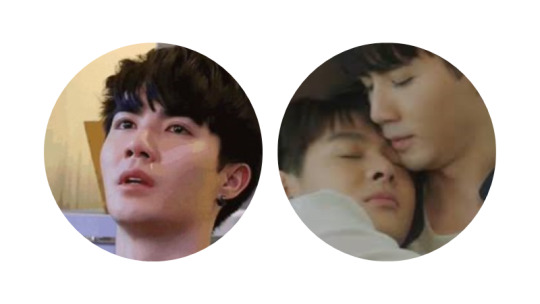
Only when Fighter goes he breaks down in anguish truly thinking he lost him. Fighter finally comes out to his dad and fights his views, And we end up back at the beach, a place which represented authenticity and truth for them, it’s their truest realest self, but it also was their escapism. So Fighter coming there and letting Tutor know there’s no more obstacles in their way makes them both finally equally start a stable relationship with no more fear or care about anything. These twos relationship is full of tension and they both feel the chemistry, like magnets their bodies are drawn together, every scene they’re in, it’s their love language physical touch not bl fan service. They just naturally want to be in contact with each other and also their pent up feelings leads to them constantly wanting to sleep together because of hormones and well because they enjoy their se*ual life, nothing bad about that it’s realistic for couples to be that horny, that needy and that touchy.
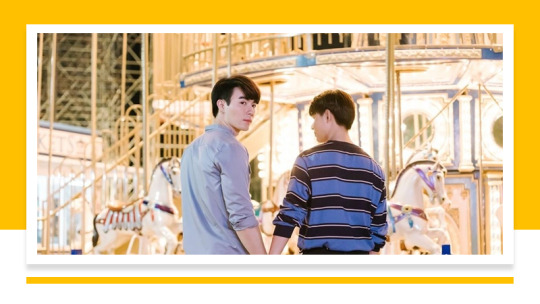
It’s people who don’t get the context of internalised homophobia and what being in the closet is like for people with this anxiety and self hate caused by how they think society views them and treats them if out, those are the people who think there was no plot. Every dialogue these two had, their flashbacks and their acting (eyes, facial gestures, touches) showed why Fighter liked teasing Tor, why he dated Hwa but never paid her attention, why we had the beach scenes, why the break up escalated, why Tutor gave in when ill, why the non/dubious consent scene happened, why they get back together and why they told each other I love you forever immediately after they got together. Every single part adds up. It really is insane to me how people don’t see their real story to this day or see them as such a great storyline for BL. I would never get it.
116 notes
·
View notes
Text
Xena: Warrior Princess Review
During Pride Month 2020, I finally got around to watch ‘Xena’. A show that had been in my to-watch list for years, but never got around to start. And when I finally did, I was pleasantly surprised. It was not what I expected and it was everything I think my 11 year old self would have loved.
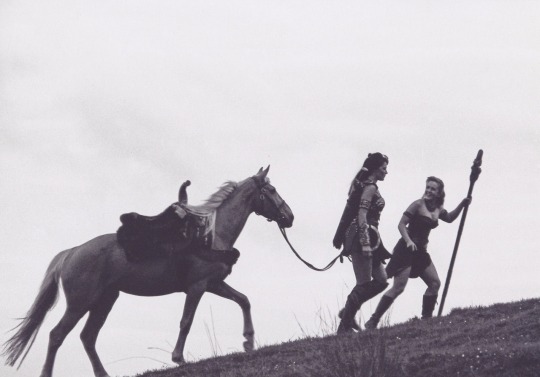
The one thing that surprised me about the show, was the lack of packaging. Even though it was a fantasy, it also played with different kinds of genres too. I’ve talked about this before in my other review - ‘Xena’ was made at a time when TV had very few rules/rarely had a set audience, since there were parts of the show that were clearly for kids and there were other parts that were clearly for adults (therefore had much more flexibility). I admired how they weren’t afraid to break barriers and touch on deep themes such as religion, morality, redemption, spirituality, motherhood, forgiveness etc - even more than shows of today are able. I also loved how they played into the idea of ‘murder’ and how much it can damage a person - not just the person who commits the act, but the many people affected afterwards. I wasn’t expecting it to be that extreme. It made me think that this must of been the inspiration for ‘Game of Thrones’.
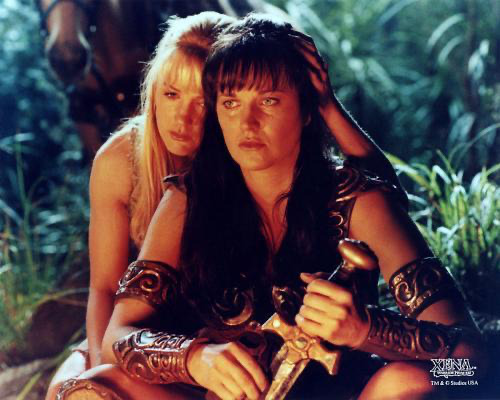
I see a lot of comments here and there, saying how ‘cheesy and terrible’ it was but to just accept it because its part of the fun. And while like any show it does suffer from the occasional spell of bad writing (the whole of season 5) but it was also shown to be very aware of that fact and never took itself too seriously - unlike some shows I could mention.
And regarding the ‘cheese’ factor (what 90s show wasn’t) It definitely can be, but I would call it ‘camp’ and ‘experimental’ more than anything else. (Don’t diss the poor use of CGI - I’m personally sympathetic to what was avaliable to them at the time) The style of humour reminded me of Taika Waititi’s filmmaking. If you’ve watched any of his films such as ‘Hunt for The Wilderpeople’ or ‘Jojo Rabbit’, then you know what I’m talking about. I liked how little they cared about being accurate or logical, which added to the ‘bonkers’ element in the show - which you can see in all of Taika Waititi’s films.
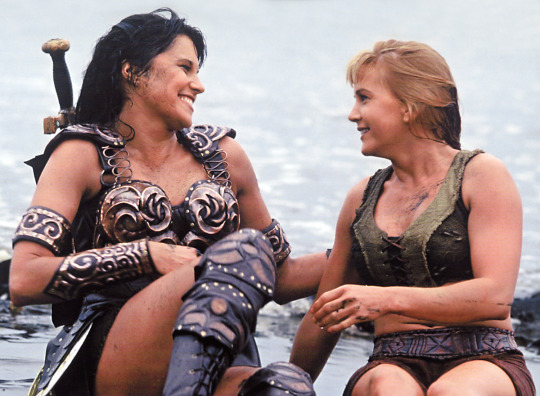
In all seriousness, a show centered around two women in their late twenties, who are realistic sizes (not trying to play teenagers). One of whom is a reformed mass murderer, who has lived a life experience, trying to do good in the world for the first time, picking the other one up who has no life experience prior (after they bugged them until they said ‘ok fine’) in their path to redemption. Just two women who become friends travelling the world together, fighting crime, having a laff, learning from one another without any toxicity - when suddenly when the stakes are raised - they realise ‘oh I'm actually falling in love with this person’ I have watched a lot of badly written shows in my childhood enough to know that, that’s not ‘cheesy’. I’ve never seen a story like that in my entire life. I’m not at all surprised that Russel T Davis was inspired by it while writing the Doctor and Rose’s relationship in ‘Doctor Who’ since he’s gay himself.
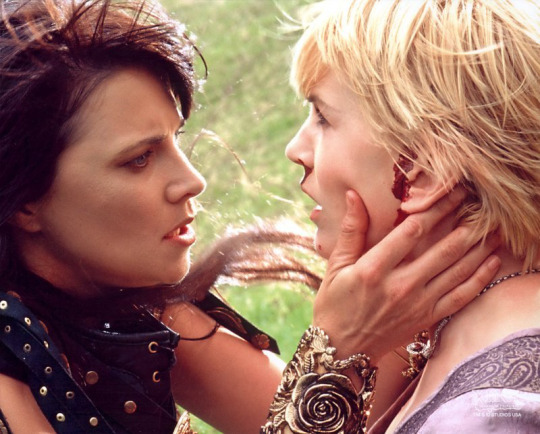
What’s more amazing about their love story is how they’re both develop as separate people as well. There was this video essay explaining ‘Why you should watch Angel’ the spin off series to Buffy; how ‘Buffy The Vampire Slayer ‘was all about growing up and ‘Angel’ was all about being an adult. With Xena: Warrior Princess, you have both of those stories at the same time.
Xena’s character was such a multifaceted experience to watch. And I can’t imagine anyone else who could play her as well as Lucy Lawless. What planet did they get that actress from? She's flawless! The amount of skill she has to put herself into a very physical role is astonishing. I personally had a love/hate relationship with her character all series long. Not in the way that I hated her, just that I couldn’t trust if she was all good or bad, which I know was intentional on the writers part. I haven’t seen a character quite like her before. She felt very much like a fallen angel; almost like the villain of her own story. Some of my favourite episodes come from fleshing out her character and dark past (‘Locked up and Tied Down’ is one of them) which reminds the audience that's she's not the stereotypical hero everyone expects. I loved her transformation from being this incredibly stoic warrior to being content and happy with who she is in season six, all because of a woman she fell in love with along the way.
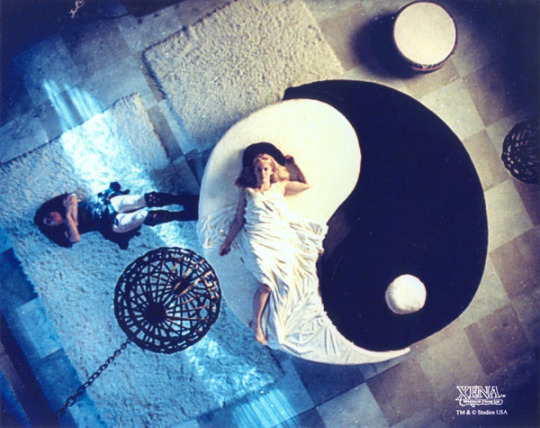
I’ve always thought of Gabrielle as the real hero and narrator of ‘Xena’. She’s the prime example of ‘a normal person becoming extrodinary’. Gabrielle’s coming of age story starting out as an innocent girl from a poor village dreaming of adventure, and ending as this vicious warrior who realises the ‘adventure’ wasn’t how she made it out to be is honestly the best character arc that I’ve ever seen. I loved how travelling with Xena made her realise her passion for writing (which was never going to happen in her home town, given the ‘sexist’ and ‘heteronormative’ ideas) and that she became a amazon princess like Xena. In regards to her sexuality, which is more up for debate than Xena’s (which I think we can all agree is bisexual) I personally interpret her as gay, just in terms of how she was written. Theres this moment in season 4 where she's being held up her hair, and Xena “symbolically” cuts it off ‘freeing her’. And she never really gets with a man afterwards, unless she’s being ‘possessed. It reminded me of a moment in one of Hayao Miyasaki’s films ‘Laputa, Castle in the Sky’ where the bad guy Moska shoots Sheeta’s ‘princess hair off’ which symbolises her transition from child to adult.
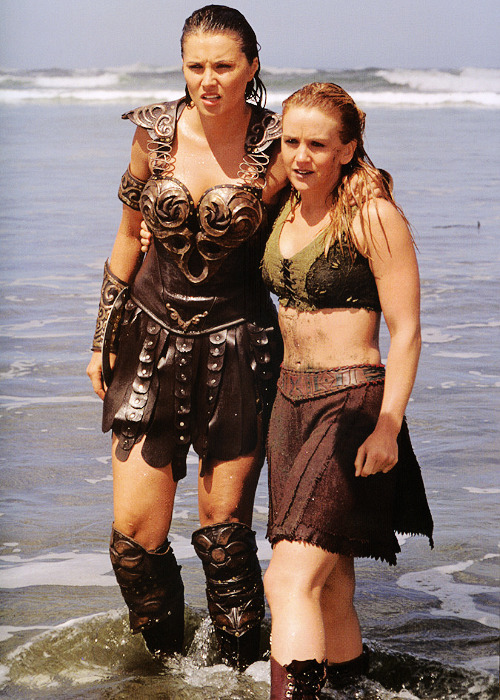
The cinematography was breathtaking. There was some great utilisation of New Zealand as the scenery. So was the soundtrack. You could tell it was made by experienced filmmakers. One of my favourite things about the show was the domestic elements - moments in the show where time seemed to stop - which made the world around the characters seem very real and magical. Even though it was a show that featured a lot of action/adventure, there was also this gentleness to it as well. For example, you could feel the wetness of the rain, the warmth of the sun and the clashing of the waves. This technique is used in Hayao Miayasaki’s work a lot .
The technique is referred to as ‘MA’ 空虚 meaning emptiness in Japanese. ‘Miyasaki describes this as the time between a clap’
“If you just have non stop action, with no breathing space at all, its just busyness. But if you take a moment, then the tension building in the film can grow into a wider dimension” - Hayao Miyasaki
youtube
The episode ‘A Day in the Life’ in season two is a really good example of this technique being used.
To my understanding, they used a lot of the local actors in New Zealand, which according to Lucy Lawless, consisted of ‘African immigrants and other different ethnicites’. It was so refreshing to see such a diverse show (despite some slip ups) especially in the 90s. I appreciated the idea that if the actors or extras couldn’t do an ‘american accent’ people could just talk in their natural speech which was also very refreshing.
The LGBT representation was surprisingly amazing. I never expected so many queer characters in one show - especially under the censors. There was this one episode where they had a trans woman - played by an actual trans actress - win a beauty contest. It made me cry. Not to mention the actress was an aids activist. It was actually Lucy Lawless’ idea to kiss her which was incredibly controversial at that time considering how everyone thought you could catch aids just by kissing. I can definitey see how it validated people back in the 90s.
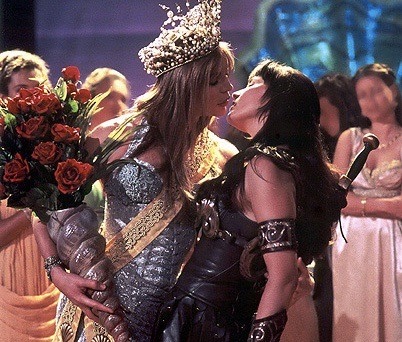
When people told me that Xena: Warrior Princess was one of the greatest love stories, I thought they were exaggerating a little. But no, watching the show in context, I found out that it really is. Despite its obvious restrictions, It made me realise (regarding token gay couples today) how often television writers rely on physicality and drama to convey a ‘love story’ and how much of it is actually pandering the audience. One of the reasons why Xena and Gabrielle’s relationship felt so genuine is because it was built on mutual respect/compassion and they were also best friends. I felt like I was witnessing something very real and private. It didn’t need kissing scenes or drama to make it interesting.
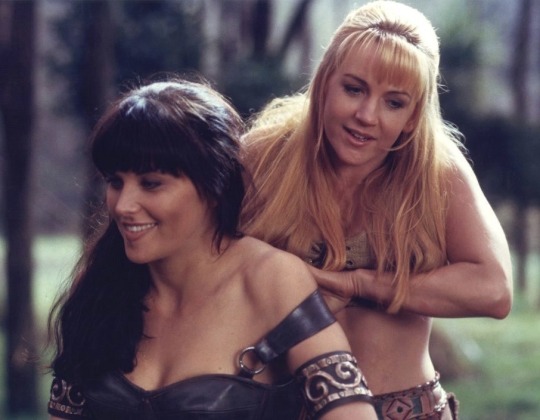
It really helped that most of the writers were queer also. There’s this opening scene in season 4, panning over to Gabrielle giving Xena a massage (metaphor for sex - because they weren’t able to show that on screen) which I consider to be one of the most iconic scenes in media - considering how I wanted to sick up my supper when I watched the 10 minute ‘empty’ explicit sex scene in ‘Blue in the Warmest Colour’. The difference when something is written by a queer women vs a straight man.
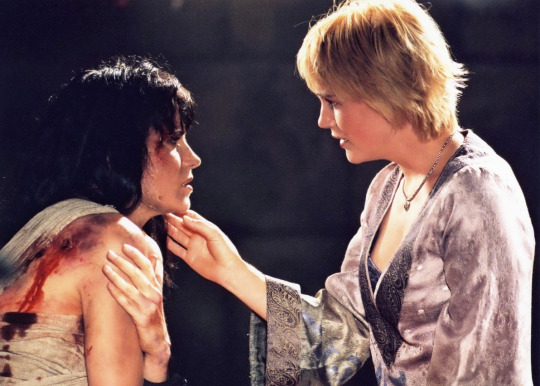
Because the creators weren’t allowed to write their love story in the normal way, due to the studio forbidding them to, they found creative ways to showcase that love on screen - which made for a very magical/sensual experience. And I can safely say, if anyone has doubts about watching ‘Xena’, whenever I expected to be queer baited at a few points in the show, I was proved wrong time and time again. It’s the most romantical show I’ve ever seen in my life!
#xena: warrior princess#xena#xena x gabrielle#review#rating#analysis#renee o'connor#Lucy lawless#90s show#lgbtqia#lgbt#pride month#-- it truly is a unique show#gabrielle#studio ghibli#hayao miyasaki#quote#film#reference#fantasy#lgbt representation#lgbtqia representation#doctor x rose#xena x gabby#subtext#happy pride 🌈#queer subtext#xwp#xena and gabrielle#xena & gabrielle
286 notes
·
View notes
Text
Well I can’t stop myself so it’s theory time
So I’m sure that quite a few of you have seen the new merch by now, and among the core four’s new shirt designs we also have this one, which represents Thomas:
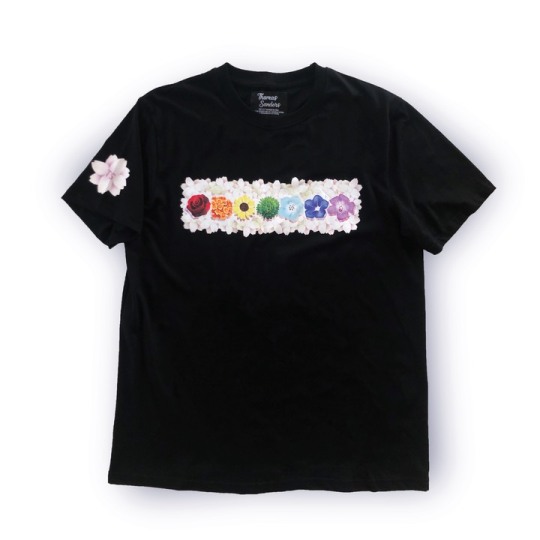
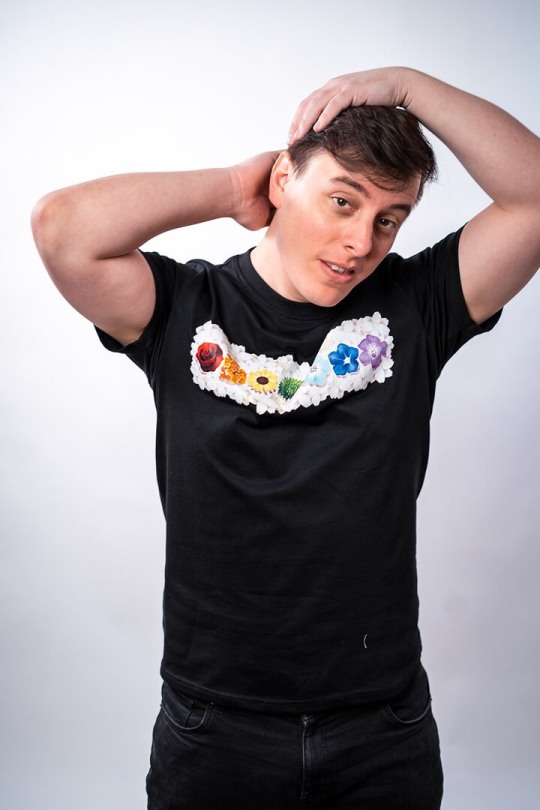
What’s immediately interesting here is the orange flower. It’s pretty easy to see that each flower represents a side, so this pretty much confirms that we have exactly one remaining unknown side left, the orange one.
Now, when you look into the symbolism of these flowers... that’s where it gets interesting.
Red is a rose, which represents passion, love, and romance, aka pretty much everything Roman’s about. Which means that all these flowers likely have some symbolism worked in.
I’m gonna skip the orange flower for now to look at the other sides real quick.
Deceit is represented by a sunflower. Sunflowers represent loyalty, adoration, and happiness, which isn’t really what I’d assign to him. I can definitely see loyalty relating to him, but the other traits don’t exactly seem to comply. I did find a few sources that say sunflowers also represent ambition, which I think fits Deceit well too, though it isn’t a very mainstream trait of the flower. So why doesn’t his fit? On of two options: it does, with the focus on loyalty & ambition, or it purposefully doesn’t to highlight his nature as Deceit. Though, if I were picking yellow flowers that don’t symbolize Deceit, I would have definitely picked the daffodil, since it represents honesty and that’d be hilarious.
I can’t quite tell what Remus’ is meant to be other than it seems to be a succulent? Anyway, some further research leads me to believe that it may be an air plant, which is like a subsection of succulent. Air plants symbolize freedom and creativity, which is pretty on the nose. They also don’t need soil or a lot of care to survive, which could potentially parallel Thomas not really caring for Remus for a long period of time. Here’s what an air plant looks like:

Patton’s flower is a bit hard to identify, but I think it might be a delphinium. Delphiniums of the light blue variety symbolize cheerfulness, joy, youth, and remembering past loved ones. All things that fit with Patton. Here’s what delphiniums look like:

Now you might have noticed that the darker blue variety looks a bit like Logan’s flower. I have two theories for him. The first is that his is a guardian blue delphinium, which symbolizes dignity. However, he still gets a lot of the symbolism involving joy and fun, which either don’t fit or do fit since we all know Logan does in fact experience joy and just pretends he doesn’t. His flower paralleling Patton’s would also make a lot of since due to the other numerous parallels in their icons, outfits, etc. The second theory is that his flower is a periwinkle. Periwinkles represent calmness, winter, and ice, all stuff that fits Logan. Here’s what a periwinkle looks like, for comparison:

Next up is Virgil’s flower. I’ve once again got a few guesses on this one. My first instinct was lavender, since it’s been proven to calm anxiety, but other than that it represents calmness, silence, and devotion, which don’t fit too well. Here’s what lavender looks like:

So instead I took a look at rhododendrons. These flowers symbolize danger and caution due to being toxic, but when given as a gift they symbolize protectiveness. A much better fit, in my opinion. Here’s what they look like:

I’m gonna move on to the presence of pink flowers on the shirt before getting to orange. Since the pink flowers are not in the lineup and instead behind it and on the sleeve, I’m assuming they represent Thomas himself (or I’m looking into it too much and they’re just a nice background but tOO BAD THIS IS A THEORY POST I CAN BE AS CRAZY AS I WANT)
These flowers look like cherry blossoms to me, though they seem to have too many petals so I’m probably wrong. Cherry blossoms symbolize life, death, and renewal, and there’s a bit of a focus on living in the moment too. Since the series focuses around a lot of problems involving time running out, I think it fits well enough, and I’m not gonna look into it any further ‘cuz this post is getting long and it probably doesn’t mean as much as the other flowers. Here’s what they look like, though:

So! Onto the interesting one: the orange side! His flower is really interesting because it’s not very obvious and what it could be could tell us a lot about what the side represents. My first theory is that it’s a marigold. Marigolds usually look a lot different from what’s on the shirt, with really big, frilly flowers instead of tiny bunches of them, but the tangerine gem variety looks much more similar to the shirt:

Marigolds represent passion and creativity, but they also represent a lot of more negative traits such as cruelty, grief and jealousy, which are a lot to have all at once. Jealousy may also tie into greed as the flower can also mean a desire for riches. So if it’s this flower, we have a good case for the trait being cruelty/anger/wrath or envy/jealousy/greed.
Another flower it might be is a california poppy. Poppies symbolize sleep, peace and death. Also an overactive imagination, but I’m disregarding every mention of creativity because if it turns out that Roman and Remus are triplets I’m gonna LOSE IT. Ahem. Anyway, I think if this is the flower, due to its ties to sleep and death, the side may be depression/sloth/laziness. Here’s what a california poppy looks like:

Next up is butterfly weed. This flower means let me go/leave me, which is usually meant for relationships but in this context could mean a side that doesn’t like forming relationships/getting attached. I’d pair this trait with depression/self-loathing. Here’s what it looks like:

So in conclusion, I am no further along in deciding what the orange side represents and I spent like over an hour researching all this so I’m gonna go write the actual essay I was supposed to be working on. Feel free to suggest what you think everyone’s flowers are or what they mean or if you think I need to take a chill pill or whatever.
#sanders sides#thomas sanders#theory#orange side#im not tagging everyone lol#also apologies for the very VERY long post i got overexcited#also i would've elaborated a bit more on roman but his is just too easy#please send criticism together we can predict the orange side#ts remus#ts deceit
2K notes
·
View notes
Text
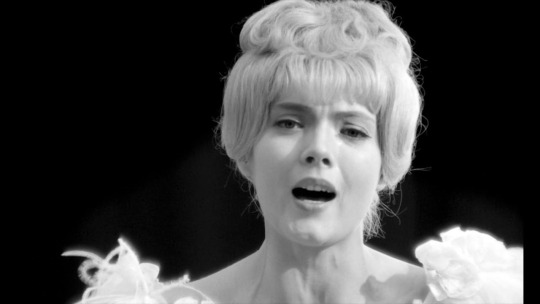
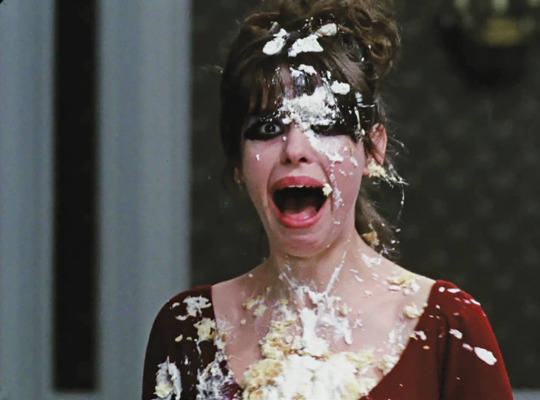
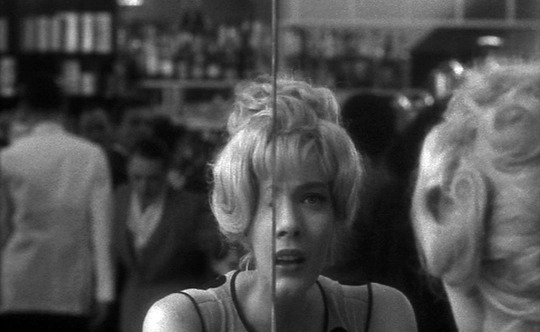
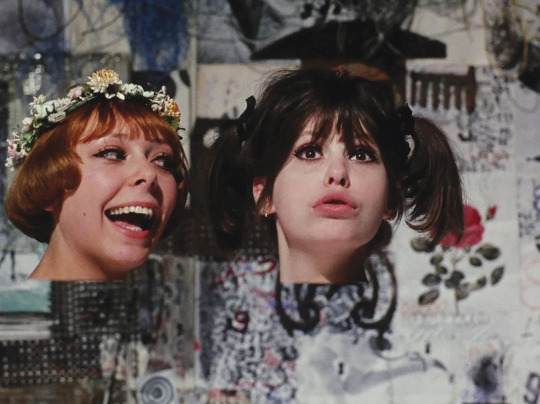
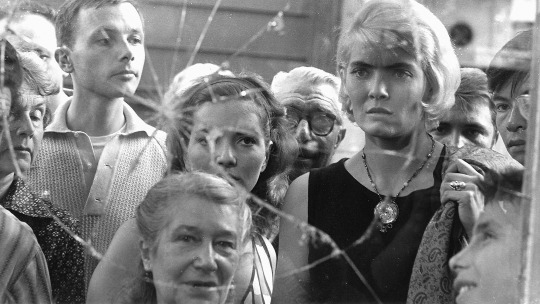
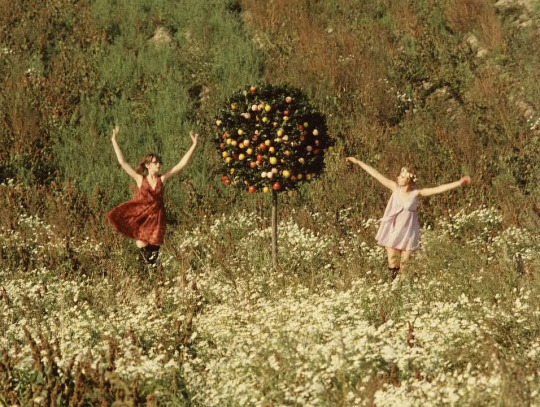
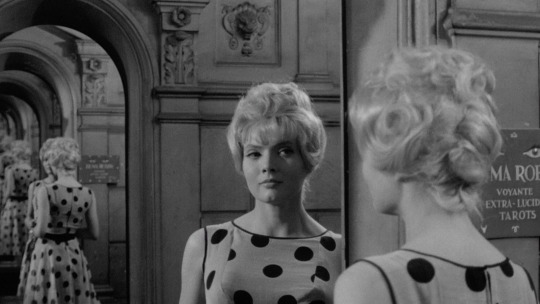
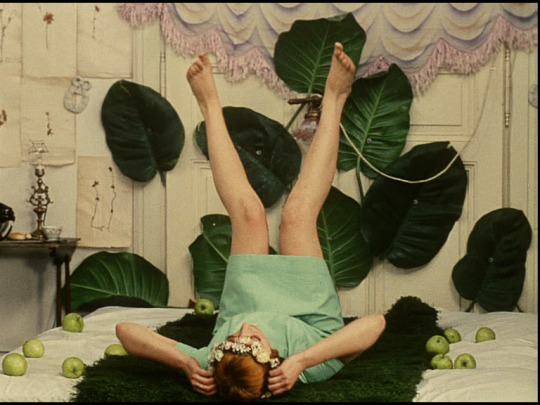
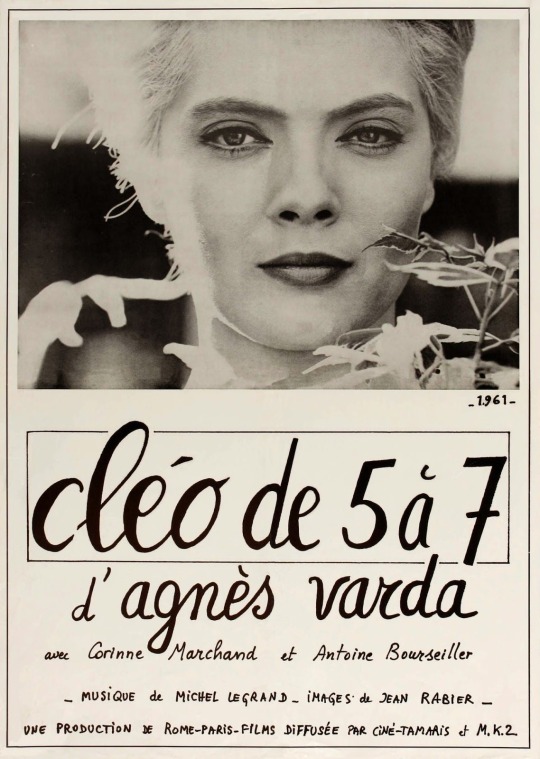
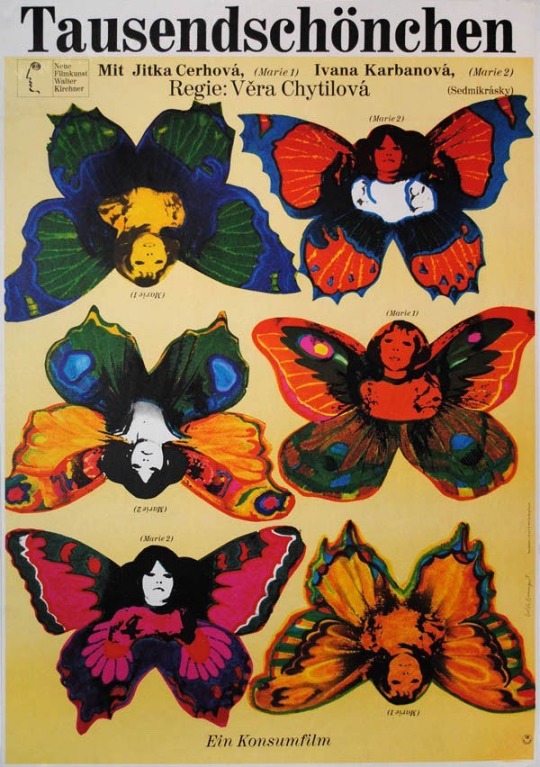
Cleo from 5 to 7 (1962)
Directed by: Agnès Varda
Daises (1966)
Directed by: Věra Chytilová
Sorry for the long scroll. This is an essay I did for a class about a year ago. It was on two women directed foreign films Cleo from 5 to 7 and Daises. In the paper I get into a lot of the similarities between the films and what they do well, but I don’t get to really give my opinion on them. Both the Czech Daises and French Cleo are wonderfully unique. Daises was chaotic, fun, and plotless. I really had to work to eek out some meaning from that one. Cleo from 5 to 7 caught me by surprise of how much I loved it. It’s one of the best films I’ve ever watched. I don’t always judge films objectively like I ought to. Usually if there is an extremely stuck up, narcissistic lead character in a movie it turns me off. I’m not really interested in seeing personality types like that. Cleo from 5 to 7 breaks through for me though. The evolution of Cleo’s character is based so much on real experiences that I find it to be such a truthful story, with layers of weighty symbolism.
———————————————————————
The Timid Cleo and the Bold Daises
Through the Nineteen-sixties feminist movements could be seen sprouting all across the globe. The art, music, and filmmaking alike from these periods captured and spread these feminist ideals. Agnes Varda in France and Vera Chytilová in Czechoslovakia were women film directors who made films with women’s issues in mind. Varda’s Cleo from 5 to 7 is a slow, plot driven drama that follows, as David Cook puts it, “the life of a young pop singer who is waiting for a lab report that will tell her whether she has cancer” (Cook 370). Vera Chytilová ’s Daises appears to be a plot-less comedy headed by an anarchic female duo. Both films were made in patriarchal societies and appear to take place in them. The two films explore how their women protagonists deal with being seen as objects of beauty in these male dominated worlds. Cleo struggles with finding her self-worth outside of her superficiality and feels like maintaining her beauty is tied to that self-worth. Marie I and Marie II in Daises inversely have no questions about their self-worth and use their objectivity to their advantage. The Maries thus have less evolving to do in comparison to Cleo who’s journey it is to detach her pride from her beauty.
Cleo wallows in fear as she awaits the results of her biopsy. Everyone she would consider “close” to her, like her assistant, her boyfriend, and her pianist seem uninterested in her troubles or are unwilling to give her a comforting ear. That is until Cleo meets up with her old friend from art school, Dorothee. After a stressful day Cleo heads to the sculpting studio where Dorothee works as a nude model. As Cleo walks into the studio the camera appears to give us a first person shot from Cleo’s perspective. It’s a slow, apprehensive moving shot into the room where the sculpting is happening, giving us the feeling that Cleo is uncomfortable with what’s happening. Then we see Dorothee posing naked still in the middle of the class and she meets eyes with Cleo. She does not appear embarrassed in the slightest, on the contrary she is excited to see her friend. Cleo waits for Dorothee to finish her shift and get changed so they can walk out together. We learn as they talk that Cleo was in fact uncomfortable in the studio as she tells Dorothee that she would be “afraid people would find a fault” if that was her. Dorothee responds with one of the most profound quotes of the film and one that seems to stick with Cleo. Dorothee says “my body makes me happy, not proud” meaning that she can be happy about the way she looks without having her self-esteem or pride being affected by it. Through the first half of the film Cleo had been overtly concerned about her disease possibly affecting her appearance. This is exemplified by her constantly checking in mirrors to see if she is still pretty. It appears that to Cleo her beauty and fame are all she is good for. She sees herself through the patriarchal lens. For example, Cleo’s never present boyfriend shows up to her apartment for a quick chat in which he avoids the topic of her sickness and extols upon her beauty for five minutes until he leaves. Also, a few minutes later Bob, her pianist shows up and jokes about how he’s attracted to her because of her money. The possibility of a cancer diagnosis forces Cleo to start thinking the way Dorothee thinks. Allison Smith writes about Cleo’s cancer that “Her knowledge of its existence therefore obliges her to see herself differently, to take account of her own awareness” (Smith 97). This focus on the world outside of herself helps her find someone who actually cares about her and not just her good looks. That person is the soldier Antoine. Even though he finds her beautiful that is not the only aspect of Cleo that he is invested in. He cares about her health; the only other character in the film besides her longtime friend Dorothee that truly worries about her diagnosis. Cleo ultimately finds solace in the fact that she has made a real, non-superficial relationship with another human being. The protagonists in Daises also are involved in superficial relations, yet they do not perceive them as negative the way Cleo does.
The two young woman named Marie who headline the film Daises have no qualms about being objectified. Like Cleo, everywhere they go, they capture the gaze of men. The Maries are comfortable within themselves enough to use their beauty as a tool for their own benefit. From the outset of the film the girls exclaim that they intend to spoil themselves, so using men for free dinners and then dropping them like used napkins afterwards naturally follows. One such occurrence happens in a scene where the red headed Marie is over at the apartment of some butterfly collecting pianist. The man creepily exclaims his love to her through a poem while Marie poses nude for him. He calls her Julie, giving us the impression that Marie gave him a false name, just like the Maries do with all the men they meet. Handing out false names shows the lack of commitment and respect they have for the men they toy with. Once Marie starts to put her bra back on, the pianist gets angry and says, “I wish you’d never come into my life!” Marie knows exactly how to play him though and the next thing he sees is Marie holding two framed butterflies over her exposed chest. The man completely reverts back to exclaiming his love for “Julie”. Marie uses this opportunity to ask for the one thing that the Maries always want, food. Women overeating is just one of the patriarchal taboos that Daises flips on its head.
The characters of this film go against the traditional patriarchal ideals of what women should be. Women are used to having their beauty be used against them and for the pleasure of men, but in Vera Chytilová ’s film the Maries use their beauty against men and for the pleasure of themselves. Traditionally women also have been forced into the submissive role in society, where they have to keep themselves composed and presentable constantly. To the Maries that is not even a thought that crosses their minds. They do not adhere to being the submissive ones, in fact they control the dialogue and direction of every interaction with men in the film. Laurel Harris seems to agree with me when he writes “…the Maries’ hysterical excess is a calculated response to inadequate roles in their society for individuals of their age and gender” (Harris 4). The duo also does not worry about seeming composed or mannerly when scoffing down pastries and appetizers in crowded restaurants. In antiquated gender roles women are made to watch how much they eat so they can maintain their figure, but at dinner with one of their suckers, one Marie asks the man “Are you on a diet?” I agree with Peter Hames assessment of Daises’ conception when he writes “Since women have been excluded from productive behavior, they have turned to art and play” (Hames 87). Hames is saying that Vera Chytilová ’s film is a reaction to woman being controlled for far too long. Whether Chytilová set out to make a feminist film or not the end result for Daises is a film that does not judge its non-conformist female characters.
Cleo from 5 to 7 is more explicitly set in a male run society. Agnes Varda created a character in Cleo that starts off fully invested in that societal structure. Her happiness is tied up into her superficial being, but because of the cancer she is forced to take account of what truly is meaningful in her life. She starts to crave caring relationships with people who recognize her for more than just being a pretty pop star. Cleo finds the power within herself to break out of the caged existence of women in a male dominated society. Cleo at one point in the film rips off her wig and gives away her fashionable hat; two symbols of conventional female beauty. Cleo from 5 to 7 and Daises both represent women’s lives in these feministic ways.
The two women filmmakers Agnes Varda and Vera Chytilová end up making similar films in that they have themes of women empowerment. Yet, the way in which its illustrated in each film is drastically different. Chytilová’s Daises wastes no time in showing the viewer that women can be unapologetic anarchists. There is no preconception of womanhood that the Maries have to fight to overcome. They just are empowered women. Cleo from 5 to 7 shows the evolution that a particular woman has to make to escape from seeing herself as just an object. These films helped inspire a generation of women in not conforming to typical patriarchal standards.
Works Cited
Cook, David A. “Chapter 13.” A History of Narrative Film. W.W. Norton, 2016.
Hames, Peter. “The Golden Sixties: The Czechoslovak New Wave revisited.” Studies in
Eastern European Cinema, 2013.
Harris, Laurel. “Czech New Wave Cinema: The Children of Marx and Kafka.” PopMatters, PopMatters, 30 Mar. 2002.
Smith, Alison. “Agnes Varda.” Manchester and New York, Manchester University Press, 1998.
#barbosafilm#movie review#cleo from 5 to 7#agnes varda#daises#věra chytilová#french film#czech film#feminism#feminist film#women in movies#women in film#female lead#movies#film photography#film#movie poster#film review#cinematography#director#screenshots#jitka cerhová#ivana karbanová#corinne marchand#1966#1962#michel legrand#French feminism#movie stills#film reviews
122 notes
·
View notes
Text
Is Kairi Capable of Mind Manipulation?
: Kairi’s Letters and the Power they May Hold

So. I have some personal theories about Kairi that I need to get off my chest. There’s a lot. Above is a scene from the KH3 opening that I will be breaking down later but for now, please keep it in mind as we go…
First of all, I’m so relieved that finally it’s been revealed that Kairi was a pawn in Xehanort’s schemes, now I don’t have to waste time arguing for that. All I will say is that evidence of this has been here since kh1:
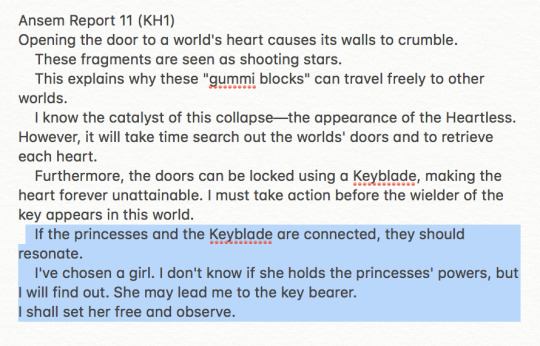
Okay, moving on.
What does Kairi do exactly? Not too much on screen, but here’s what we know so far. -She holds the power of a princess of heart… maybe. -She is sent out to Destiny Islands to draw out the key blade bearer (Riku) -She writes letters to Sora. -She is closely connected to Namine, loosely connected to Xion, and figuratively comparable to Aqua. -She claims her memories of home are a little hazy for her. -She loves Sora as a friend. -She becomes Sora’s Chirithy.
If you want to know ahead of time what my ultimate theory is, here you go: Kairi has magic powers of memory or mind manipulation, and her letters, specifically, are manipulating Sora. If you wanna see me break down why I think this, here we go.
Pre-requisites to this theory:
I would very much prefer not to have to regurgitate certain things that are common knowledge to people in the soriku fandom and kh in general. This analyst is subscribed to the idea that Kingdom Hearts is written with queer coding and gay intent, that Riku is the Light, the Sleeping Realm theory is truth, that Sora and Riku will be romantically linked in the end. My reasoning is based on my own two eyes as well as the meta discourse surrounding these readings among like-minds, so if you have time, please read:
-Obligatory Sleeping Realm Theory Link -The Necklace Theory (Which is just canon but still not explicit in game) -Queer CoM Analysis
Okay, onward!
Parallels:
We do not know much about Kairi as of yet, but what the games do give us is a string of VERY major, obvious Parallels. We are asked over the course of several games to compare Kairi to 3 specific girls: Namine. Xion. Aqua.
Let me break these down. Again, I’m so glad they finally revealed she’s a pawn so this parallel breakdown isn’t even half as long as it would’ve been otherwise hahah.
Namine.
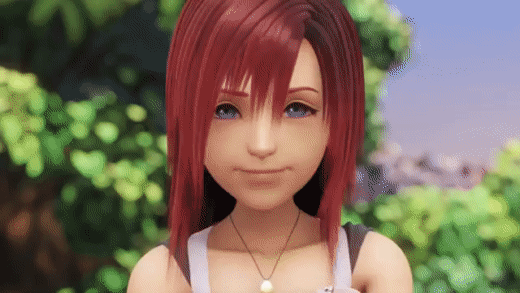
Namine is said to be Kairi’s nobody. There is so much I find suspicious about that but for the sake of staying on topic, I won’t get into it, that’s another theory for another day (though I will flirt with it the speculation section). More importantly, she is objectively, directly associated with Kairi and the plot begs us to draw very close parallels between her and Kairi.
Namine has special powers. She can manipulate Sora’s memories and the memories of those close to him. The characters believe she can do this because she was formed from Kairi’s heart and Sora’s body, and I don’t know if that’s true, but I do take for granted that she is a nobody formed from Sora’s sacrifice and that her powers exist because of her connection with Kairi. Either way, what does she actually do?
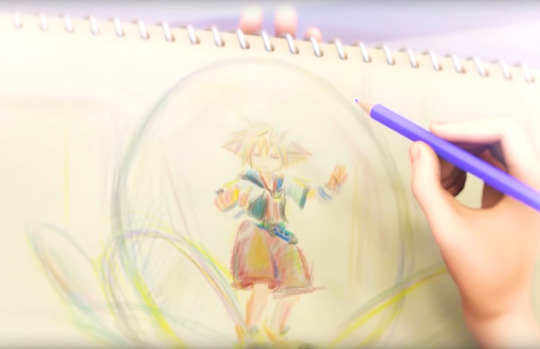
Namine spends her days surrounded by white walls, drawing pictures on paper that seemingly have the power to manipulate Sora’s memories. This is a pretty specific skill she has, and if you ask me her art style is pretty advanced for a nobody who wasn’t even formed that long ago. She has the artistic eye to include reflective lighting in her work, which is not only beautiful and colorful but in my experience, it’s something a lot of young artists don’t even think to consider as beginners. If nothing else though, its a very specific style. I will be bringing this back up later for some really fun speculation.
These drawings she does are beautiful but also specifically are tied to her powers to manipulate memories.

What we also know about Namine is that she is being used for her powers against her will. Better analysts have covered this already so I will simply say Namine is a good and caring person who has magical manipulative powers that people were abusing her for. She betrayed her captors by the end of COM by refusing to hurt Sora any longer. All the while being tied back to Kairi. What they were making her do though, was manipulate Sora’s memories to replace all images of Kairi with herself… but also certain memories of Riku. Specifically, the memory of Riku swearing an oath to protect Sora as he gave Sora his crown necklace during the meteor shower (seriously, please read those pre-req theories). And ever since her debut, the games have never allowed us to stray from connecting her back very directly to Kairi. Namine is the most literal of parallels. Please keep all of this in mind for later.
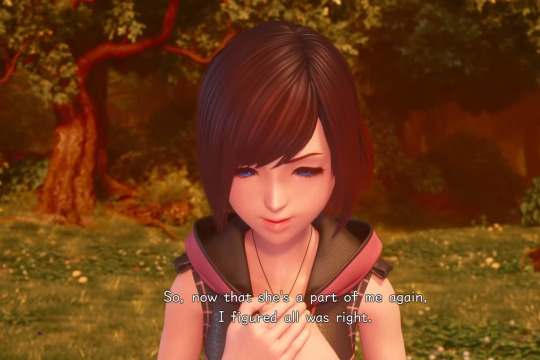
Xion.
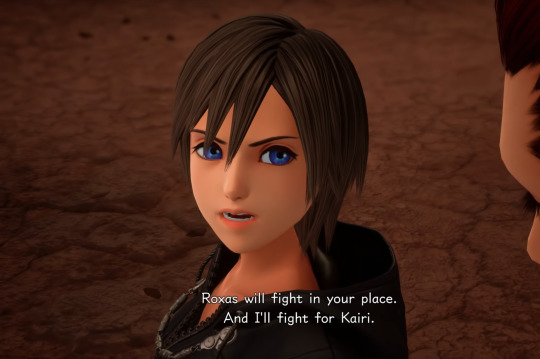
Xion, conceptually, is an extremely complicated character. She is tied to Kairi in ways that are not as literal as Namine, but she is still very closely associated with her. Once again, far better analysts can explain her better than I can, but here are the most important notes I will make about her:
-Xion is a puppet containing Sora’s memories. -The memories creating Xion are a complex amalgam of memories related to Sora himself, Kairi, and Riku.
All we really need to note for this Kairi Theory Essay is that Xion is another Kairi parallel that is directly associated with missing/manipulated memories as well. She is inadvertently taking these memories from Roxas, the Sora parallel, whom she is copied from, and these memories specifically belong to Sora. Twice in a row, Nomura has told us Kairi parallels are related to Sora’s memories being affected.
That’s all we really need to know for now, but I will also speculate further on Xion in relation to this theory later.~

Aqua

Aqua is not a literal Kairi parallel the way that Namine and Xion are. Aqua has no direct ties to Kairi the way they do, and her character is entirely original and not related to Kairi. However, Aqua is still figuratively a Kairi parallel, due to the role she plays in her story. I’ve already broken down elsewhere what role she plays that is meant to mirror Kairi, but the tl;dr of that is Aqua was set up as a pawn to observe, draw out her friends, and create a division between them. Like Kairi as well, she is not to be defined by these acts, because she truly loves her friends and dedicated her heart’s power to protecting them and saving them. She protects Ven’s body the way Kairi protected Sora’s bodily form. She also works to keep Ven from breaking by telling him he has always lived here with them and Eraqus, the same way Kairi as a Chirithy works to help Sora by taking his memory of Riku’s sacrifice away. Once again, even with the loosest of Kairi parallels, we see memory manipulation at play with the Sora parallel.
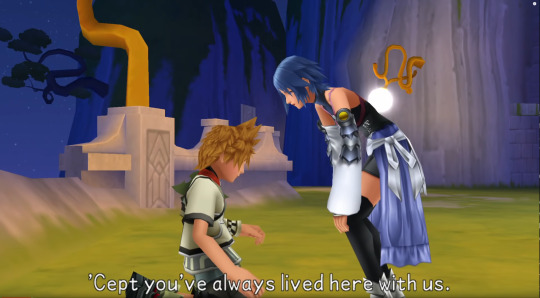
Chirithy
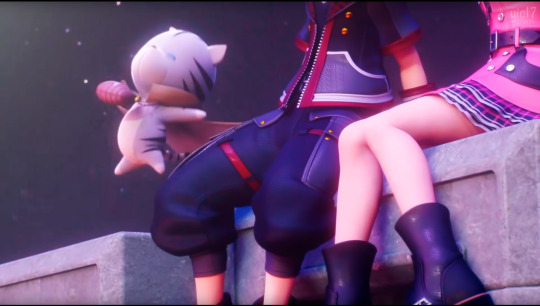
I will keep this short because I hope that you read the Sleeping Realm Theory and I also trust that you have the critical thinking skills to understand this symbolic (and literal) concept easily lol. Kairi is Sora’s chirithy the way Riku is Sora’s dream eater. A Chirithy is a specific kind of dream eater, however. A chirithy is made to follow you as your companion, and they specifically lead you into new timelines, taking away the traumatic memories you gained that caused the timeline to shift. We see this play out in KHUX, and with controversy, as the chirithies themselves discuss whether or not it’s actually morally okay for them to take those memories. Although that is a question, Kairi’s instincts are, in my opinion, purely and sweetly to protect Sora. She promised to keep him safe, (I’ve been supposing at that point in the loop she knew she was a Chirithy, and she most certainly was his chirithy by then either way given the ears on her hood appearing after Sora’s dream drop occurred). She does take Sora’s traumatic memories away, it is her job to do so, and I believe she does this solely because she means well and wants to keep him safe and smiling, as her letter to Sora suggests.
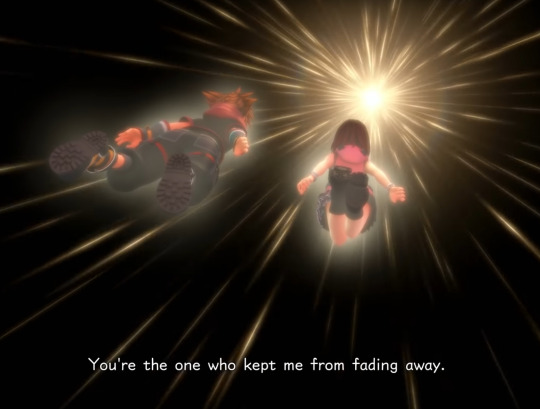
Unfortunately, what this specifically does though, is removes Sora’s memory of Riku’s sacrifice. It is stolen from him in that sense. Not only that, but because Sora’s memory of Riku’s sacrifice was taken, in spite of the event being etched onto his heart, and the pain of it being scarred into it, Sora credits Kairi as the source of the light he is following in the darkness. We know for a fact that that light is Riku’s because we saw the sacrifice, we remember it, we saw Sora call to it as Riku and receive a response, we even see Kairi twirl in front of the light and back away from it to lead Sora into it because it is not her light. Kairi, in a very literal way, has replaced Riku in Sora’s mind regarding who his light is. Kairi herself does not do this, it is Sora who fools himself because his memory was taken, but nevertheless, Kairi has just replaced Riku in Sora’s thoughts regarding this light and erased his memory of Riku’s sacrifice.
I will suggest more Things in the speculation section~
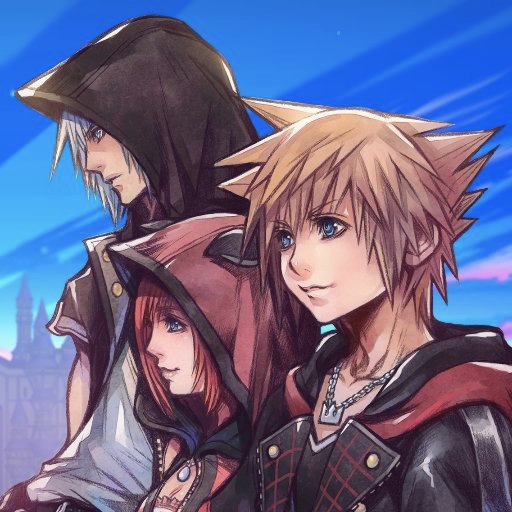
Now that all of that is out of the way, Lets Talk About Kairi’s Letters.
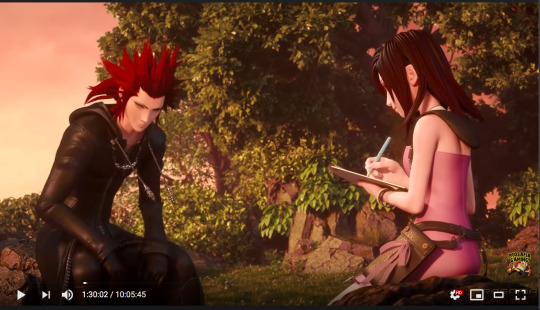
What do they do? Well, objectively, we do not know. That’s why this is a theory lol. But regardless of any magic or manipulation, letters are a means of forging a connection with others. Letters to friends by nature are words from the heart intended for someone you care about.
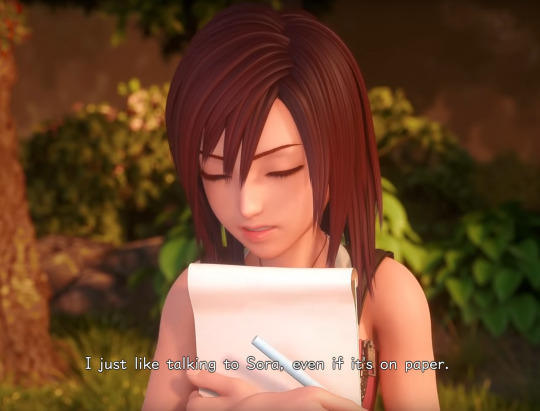
But literally speaking in the series, Kairi’s letters do something a little more special. In kh2 they forge a literal connection to Sora from Kairi. Sora is “trapped” in the dark realm with Riku, but pretty content to be so. No door opened, and that was the ending they had happily resigned to. It is not until Sora reads Kairi’s letter, emphasized by the camera, that the door to light opens. At the very least, we know for sure that manipulation or not, Kairi’s letters are capable of doing that much…

Kairi also tells us she writes letters to Sora and doesn’t even send them. For whatever reason, however, she sent the letter in Kh2 as soon as she remembered who Sora was post his reconstruction. And this is pretty much all we know for sure.
If I say “Kairi’s letters are manipulating Sora” thats rather jumping to conclusions, cuz obviously there are missing pieces. All we have is: Kairi—>Letters—> ___ —>Sora.
That’s not enough to make the conclusion. But that’s where those handy dandy parallels come in.
Namine—> Drawings—> Manipulate—>Sora Xion—->Memories—-> Borrowed—> (Roxas—>) Sora Aqua—-> White Lies—> Distract—> Ven Chirithy----> Memories----> Taken----> Keyblade Wielder
So as you can see, the missing piece that fits the puzzle, isn’t so hard to theory-craft. Especially between Namine and Kairi. It is a jump to a conclusion, but it is far from a leap. True or not, this is my working theory.
So it’s time for speculation.
Things that I have been exploring on the other side of that “leap”.
Kairis letters
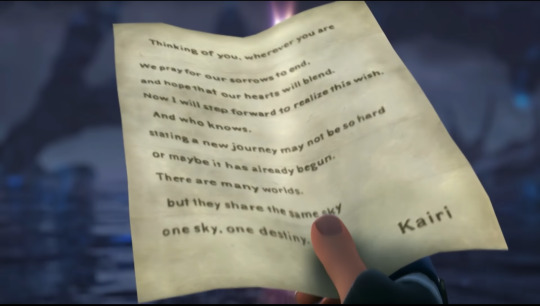
Let’s start with the first letter we get to read from Kairi.
Pretty sweet sentiments right? But here is the thing about some of those lines in particular… “Many worlds sharing the same sky” is something Sora has already heard… from Riku.
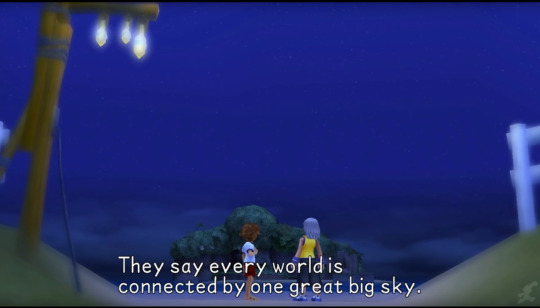
Not to mention, something about this dark realm scene in Kh2 always bothered me… Sora is seemingly in utter bliss with Riku in the dark realm.
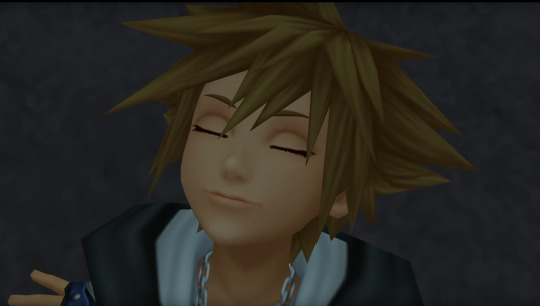
He does wanna get Riku home but if they’re stuck here, they are not complaining. And then the camera lingers for a pretty long time on Riku handing Sora that letter. That usually means they want me to notice it and consider it… Okay, time to consider it.~
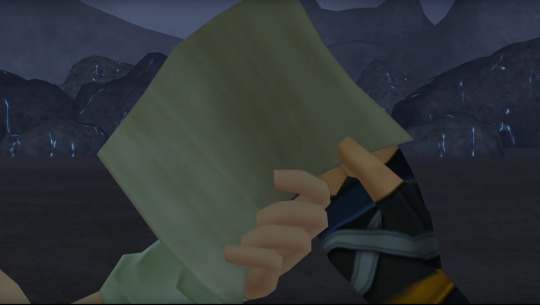

The letter pretty certainly opened the door to light by forging a connection to Sora from the light world with Kairi. Sora was so content that he wasn’t even connecting to home. Not until he read this nice letter from his friend Kairi. There is nothing manipulative about that on its own… but we have been asked by the games to parallel Kairi to Namine so I think it’s fair to suggest Kairi’s creative writing should really be considered thoughtfully the way Namine’s drawings are. The most basic logic is these letters are affecting Sora’s mind in some way. What further leads me to think this? The only thing Sora was even thinking about in this scene before reading that letter was Riku. Riku’s company, Riku’s injury, Riku’s happiness, Riku, Riku, Riku. And then as someone else pointed out here, Sora sees Kairi in the light world after reading this letter and leaves Riku to struggle to shore on his own.

This doesn’t have to mean anything but we know Riku is injured, We know the Sun is Riku’s symbol, and Sora is running from Riku, eclipsing the Sun, and rushing back to shore where Kairi is waiting to welcome him home. It is jarring when you think about it. How did Sora go from thinking about nothing else BUT Riku to leaving him with a probably-broken-hip to struggle to shore on his own? It is no wonder Riku is always left to think he is going to be alone in life and he has no choice but to struggle out of the darkness on his own.
This mirrors something in particular….
The scene of Sora losing Riku to the darkness in the KH1 opening…
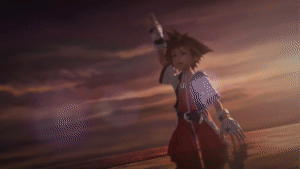
Followed by shot for shot re-animation of Sora chasing Riku’s Light in the KH3 Dive to the Heart.

And something about the scene in Kh1 always really bothered me… Sora was worried sick about Riku when he lost him to the sea- only to suddenly be happy and appear blissfully ignorant of Riku disappearing the moment he sees Kairi. As if he just suddenly forgot about him upon seeing her.
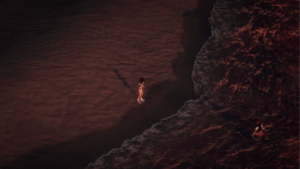



And I think the parallels speak for themselves. (Don’t forget about that beach scene in the Kh3 op either... we are getting to that.)
I’m not saying Kairi and her letters make Sora forget about Riku, but…
I’m also not saying Kairi’s letters replace memories of Riku with herself, I actually don’t know that there’s enough here to make that statement likely… So I won’t… say that…
(I hope you read those pre-req’s because I’m going to assume you speak the KH language regarding Sora, Riku, and Kairi vs, water, land and air, vs Light/Dark, the Sun, the Moon, Dawn, Sunset, Night… all that good stuff.)
Now let’s talk about her letter in 3.
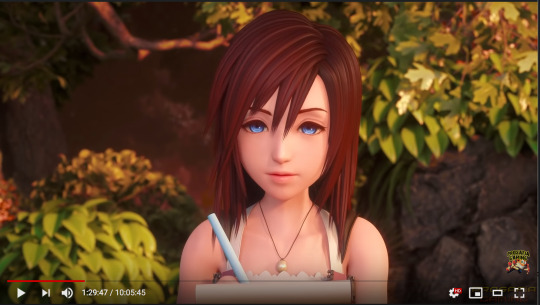

Oh this is interesting. Repeating motifs. Almost as though the game is trying to tell us something crucial.
Full transcript of Kairi’s KH3 letter to Sora that she has no intention of sending:
I'm sorry I left without saying good-bye. Did Master Yen Sid tell you? I'm training to become a Keyblade wielder like you.
That's right. No more waiting for you to come back from your adventures.
I want to get out there and do my part to help.
Merlin has used his magic to bring us to a place where time doesn't matter. We can take as long as we need to complete our training. He's an amazing wizard.
Oh, and by "us," I mean me and lea.
He's really sorry for all the trouble he caused. I told him it's fine, but he won't stop apologizing.
I'll admit I was a little scared of him at first, but I've gotten to know him better. All he ever wanted was to help his friend.
Honestly, it's hard not to like him.
Every now and then, I catch him staring at me. When I ask what's wrong, he says, "I'm not sure. I think I'm forgetting something. Don't know what."
Sora, I think it may have something to do with you.
Your journey is all about helping people: some that you've never met before, and some like Lea that you have. They're all counting on you.
It won't be easy, but I hope you'll remain the happy and cheerful Sora I know.
There's no heart your smile can't reach.
In particular, this letter goes on and on about Lea and how he has turned over a new leaf and deserves forgiveness. Personally, I took this to mean Kairi is really hoping Sora will forgive her for the part she was forced to play in Xehanort’s plot, perhaps her writing even influencing his mind to do so via urging him to forgive Lea. You may notice that this would imply that Kairi is fully aware of her role in Norty Nort’s plot. And to that I say yes, it sure would. But not as much as her leading Sora around to her various “heart” pieces like a moth to the wrong flame in Re:Mind.
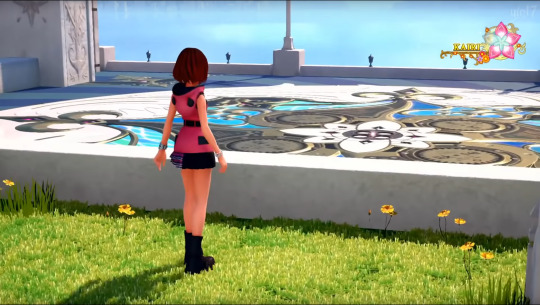
Anyway, this is not a letter she intends to send to Sora, and she makes a note of this to Lea, even when he tells her plainly that Merlin will deliver it for her. If we keep in mind that Namine’s art doesn’t even need to be seen by Sora for the mind tricks to work, then perhaps- Sora really doesn’t even need to receive this letter for its influence to work. This would rather make her frantic attempt to send the letter in Kh2 a little strange, but consider this: Her close connections to Sora are potentially based very heavily on these letters. Especially if some of her connections are based on making him forget Riku at various points. Having forgotten Sora in Kh2 until he was reconstructed, and considering that Sora barely reacts to her reunion hug with him, it rather makes a lot of sense that Kairi needed to forge a new connection with him, via one of her letters. In that case, Sora needed to actually read it.
KH3 OP
Beach Scene
Now, finally, I want to talk about that part of the Kh3 opening I mentioned at the very beginning. We are back. Once again, I trust you speak the language of Kh symbolism.

This section begins with Kairi suddenly appearing against a bright white background. Forgive me if I suggest hey, that reminds me of Namine’s white walls, or some blank pages... Next, Sora appears in the empty white environment, which remains white until, seemingly, their eyes meet. And THEN, after that delay, the world of Destiny Islands starts rendering in like a game slowly loading a world on a slow engine. Once again, the motif of Sora standing in the ocean, and running up to Kairi on the shore takes place. He is happy to see her. Perhaps he thinks he found the Light that Chirithy told him to search for. Hey this time Kairi is even running into the sea to meet him instead of waiting for him, just like she said! good for her~. Anyway. As they run out to meet each other, however, lightning strikes. Sora doesn’t see it, but he clearly senses it in some way and stops, (didn’t someone once tell Sora to mind what he hears and not what he sees?~). The camera then zooms out to reveal Sora and Kairi as pieces on a chess board in Nort and Eraqus’ game. Now, this essayist takes for granted that Riku is the Light cuz the text says so. Because of that, my first instinct is to say the purple lighting that we saw represents Riku. A forgotten, heartbroken, lonely Riku. Lightning being one of the most destructive forms of light after all, and Riku would be particularly hurt to know that Sora has forgotten him.
Where is Riku?

What is really interesting about this opening is the severe, odd, lack of Riku. He is missing throughout most of it but in particular when Sora is fighting Xemnas. In the opening for Dream Drop Distance, Riku is very much there, and the animations of him harmoniously fighting with Sora, as well as protecting Sora, self sacrificially are prominent, are there because they want you to remember exactly what happened in that scene and what Riku did.
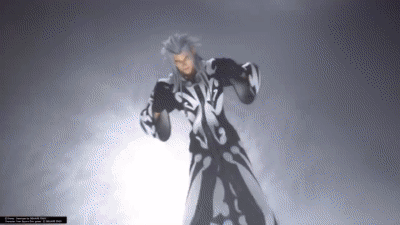
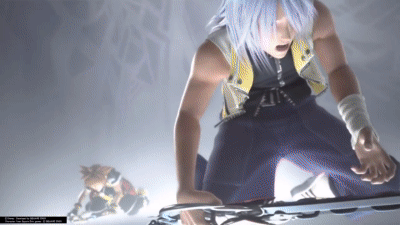
Only for that to be absent from Sora’s boss battle review sequence in Kh3’s opening. At first, I found his absence annoying but now I’ve come to realize there is a reason for it. The popular theory is that it relates to Sora’s memories being taken away. Riku’s sacrifice most certainly was one of them, thanks to Kairi as his chirithy, but that’s not the memory missing from the opening sequence. It’s basically Riku in general outside of the fall of Destiny Islands, the cast shot, and the shot of him walking into the light from shadow. There isn’t a review of previous games in which Riku played the crucial role he did, and nothing from Dream Drop Distance. To that I personally say, this is most likely foreshadowing that Sora will lose ALL his memories of Riku- as his entry fee to play the Reaper’s Game in Shibuya… Oh yes, TWEWY is also a pre-requisite for this theory lol but you should also play it in general cuz it’s a great story and if nothing else is obviously crucial to what comes next in Kingdom Hearts. Highly speculative, but my assumption is that once Sora beats the game and Joshua returns all of his memories, he will give Sora EVERYTHING back, including anything Kairi has removed as his chirithy or anything she has manipulated as herself.
Further Parallel Speculation
Remember when I said I’d love to elaborate? Well here we are~ We’re gonna get super gay too.
Namine:
Namine is a figure that represents, to me, a brilliant use of queer coding about a queer struggle known as compulsory heterosexuality (or comp-het for short as I’ll be repeating this term a lot). If you made it this far and aren’t lgbt savvy then I’ll tell you that comp-het means compulsively feeling attraction to someone of the opposite sex based on heteronormative conditioning. As Sora roams through Castle Oblivion, he is constantly finding himself misplacing memories of Kairi onto Namine followed by eventually memories of Riku onto Namine. This is one of the most literal depictions of the comp-het phenomenon I’ve ever seen, and it is BOLDLY placed in a mainstream video game from the year 2003. It’s quite admirable in my opinion. Namine’s abilities grant us a convoluted plot so confusing that most people will not understand right away, but to the queer eye familiar with comp-het, it provides a strong implication that Sora may be even more confused than we think about who it is he is in love with. To illustrate, it means Sora thinks he likes Kairi romantically cuz society told him being straight is the default way we live. In actuality, he is projecting his feelings for Riku onto Kairi, (with Riku doing the same until COM and onward), and in COM, those Riku->Kairi feelings are projected onto Namine. She creates another layer of distance between them. But even without her presence, Kairi is still there between them, a question that begs to be answered, and yet another extremely common parallel.

Namine is extremely uncomfortable taking the necklace memory of Riku and imposing herself on it. But when you consider Kairi may have been manipulating Sora, it makes me also wonder how many of Sora’s Kairi memories are actually Riku memories, and whether or not Namine even CAN fix those memories… Just food for thought. Speaking of comp-het...
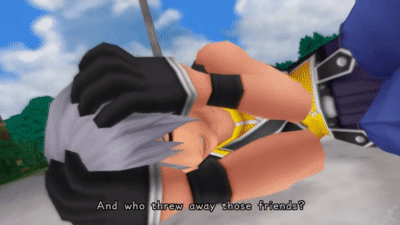
Xion Xion is an even more convoluted character creation, designed to confuse you even more than Namine does. In my eyes, Xion is very literally comp-het personified. Xion, as far as we’ve been told, is a puppet, a copy of Roxas but blank slate. A literal nobody. They are only what you project onto them. And what did Xion become?
Xion became a real confusing amalgam of so many things. -Roxas initially projects GirlTM onto her. Literally. This makes sense since he already has Axel, a male friend, and his instincts coming from Sora’s memories casually assume a female friend is needed to complete their trio. This is because Kairi was that female friend to Sora. -Over time, as Xion craves becoming whole, she inadvertently receives more memories from Roxas (Sora), of Kairi and obtains her face (albeit with black hair, and there are numerous theories about why that is but this essay is already really long lol). -The strange thing is though- despite having Kairi’s face, the hints we get are that Riku memories are zapping into her too. Not only that, but her death grants Roxas Oblivion as she enters his heart. -I don’t think I need to explain what that implies, but to keep it short, Oblivion is representative of Riku’s oath to Sora associated with the necklace memory. Namine was correct to tell Ansem the Wise that the missing memories are crucial to Sora. I have an analysis on Oblivion vs Promise Keeper that I keep meaning to post but the tl;dr of it is that Oblivion has nothing whatsoever to do with Kairi and EVERYTHING ENTIRELY to do with Riku and his oath to protect Sora. It should have no association with her whatsoever. She is also Roxas’ forgotten friend once the memories of her go away the way Sora’s memories of Riku will. -The manga also much more clearly shows us that the feelings Xion is thriving on from Sora are feelings associated with Riku: the empowerment he feels when fighting with friends.
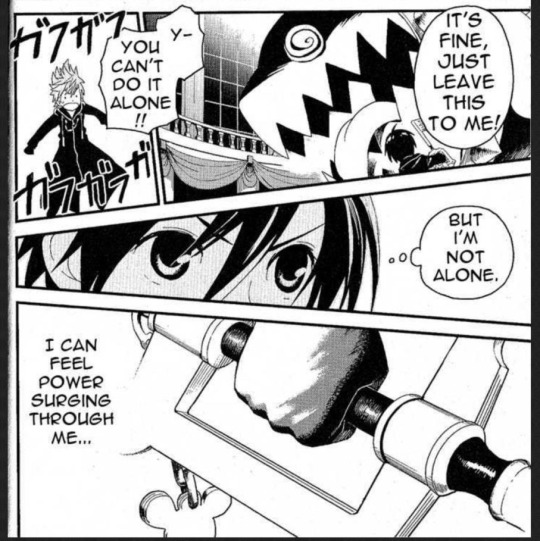

So if I may, here is the returning theme of projection, of misplaced affection, of misplaced memories. This theme is SO CONSTANT with every Kairi scene and parallel we get, and I do not think it is a stretch to say they are not just here to discuss queer themes of compulsory heterosexuality, but are integral to the plot of KH in a very literal, physical way. In other words, it comes up with Kairi way too often to make mind manipulation a leap. It’s still a jump, but it is not a leap.
Aqua
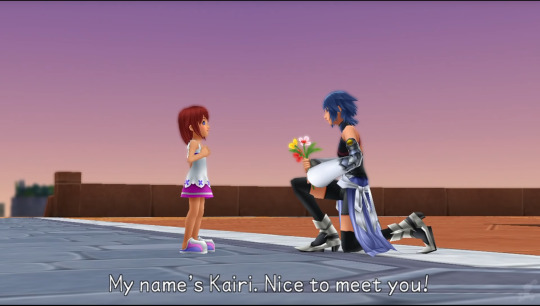
Aqua is not a literal Kairi parallel the way Namine and Xion are, so she does not bring any major compulsory heterosexuality themes to the table, and her “mind manipulation”, if my theory on white lies between the BBS trio is correct, is pretty minuscule as far as we can tell. This does not mean there isn’t anything to speculate on regarding Kairi’s powers though.
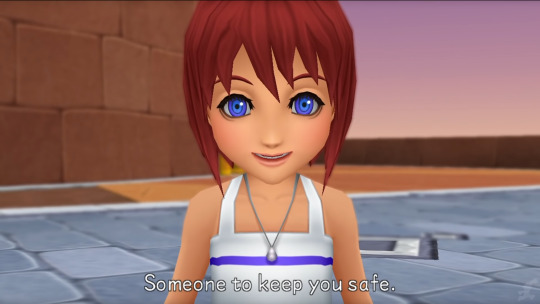
Aqua is a gifted mage, and places a protective spell on Kairi when they meet. This is such a sweet and sentimental moment and I love it so much. She also literally gives her friends way finder charms based on paopu fruits the way Kairi does for Sora. So there are some literal parallels to be found there, but the ideas that concern me most are these-
Aqua is associated with magic. Given that Aqua, Namine, and Xion, are all associated with water, like Kairi, (again I assume you speak the KH language of symbolism and metaphor), and some form of magic (Namine with mind powers, and Xion wielding the key blade), is it possible that Kairi is also a mage of some kind? Or at least harbors the powers of a mage, the way she harnesses the power of a princess of heart?
Re:Mind menu screen art
This is an analysis I’ve been dying to post but only since Kairi has been outed as a pawn spy for Xehanort have I felt free enough to do so without going through the trouble of proving her association with the dark side. You are welcome to dismiss this analysis for reading too much into it but if you’re as deep into this as I am then here we go~
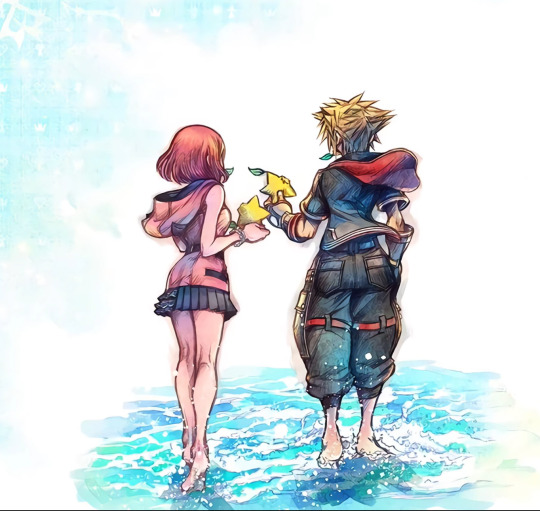
First of all, I want to call attention to how beautiful this art is, and how wonderfully symbolic I think it is, and what it actually reminds me of. Do you remember my comments earlier about Namine having a specific art style, which incorporates reflective light in her coloring? Look at the oceanic blue in Sora’s grey pants and jacket. Look at the yellow from sunlight in Sora’s hair. Look at the blue and yellow reflecting in Kairi’s pink dress and her red hair. Look at the tinge of blue from the sea reflecting on Sora’s paopu fruit. I am not saying this menu art is supposed to be literally drawn by Namine, I sincerely do not think it is lol, this is a symbolic image. But I do think it is meant to REMIND us of Namine’s art.

This menu screen, like the blank pages of a sketch book or notebook, like the beach scene in the KH3 opening, begins with a white screen. Slowly fading in, like the beach scene in the KH3 opening, or a game with a slow loading engine, we have a sketch of Sora. Sora’s feet appear already immersed in the water, as he is eating a paopu fruit, continuing his walk out to sea that we have been seeing him take since kh1 with these key arts. Sora is walking out into the ocean alone, and the coloring fades in bringing the scene to life. This is all the menu art is for KH3.

When Re:Mind was released, the menu screen for it evolved. Now, suddenly fading into this pre-existing scene is a drawing of Kairi, inserted into the moment. Kairi is depicted with a paopu fruit of her own, and she enters the scene with her feet standing on top of the water, not immersed like Sora’s the way they should be considering the depth of the water. This could be a mistake and nothing more… except the water has splash animations added around their feet, meaning this is something someone absolutely should have caught because animations are here drawing our attention to it. This would imply that it means something, so- what? Kairi is not immersed in the ocean, (darkness?), the way Sora is. She is walking /on/ water, not in it. I think this may very well be representative of her protecting Sora’s form as he navigates the new timeline in the dream scape, similar to when we see Riku and Sora walking on water in the dark realm. Or it may represent the way she is navigating darkness but is not immersed in darkness. She treads over it, not through it.
We do not know what this menu screen means. But here is my take on it. Because it is meant to remind us of Namine, we should consider mind manipulation is at play. Because Kairi appears here only after Re:Mind is released, in her Chirithy hood and eating a paopu with Sora, we are to recognize this as the second timeline, in which Kairi has been added to Sora’s journey like a figure in Namine’s art. We should also remember that as Sora’s chirithy, she has removed his traumatic memory of the timeline shift and very specifically removed his memory of Riku dying as he sacrificed himself for Sora. As the title implies, the game wants to remind us of what happened: the timeline being rewritten, as well as Sora’s Memories being rewritten, and in a sense, Sora’s MIND being REwritten. So much to do with mind and memory being affected...
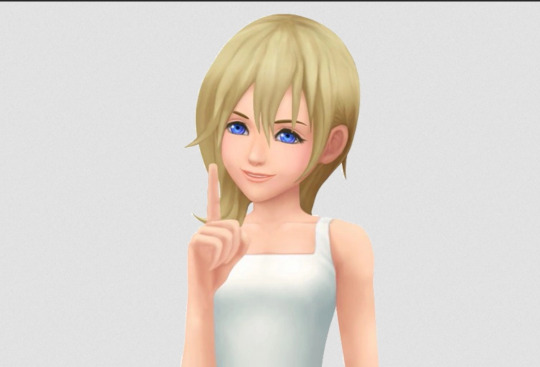
A couple more theories as food for thought:
Kairi’s Grandmother:
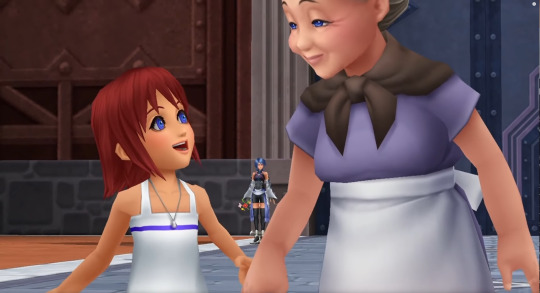
You may have been wondering how Kairi could be so pure of heart, as far as we are aware, and yet capable of morally grey things like manipulation at best, and outright terrible things at worst? Well, here is my theory: Kairi’s grandmother has been held hostage and used as leverage against Kairi. For as often as Kairi has been used as a catalyst to bait Sora into acting for Xehanort’s schemes, we know Norty and the powers he works for, (Master of Masters), are no strangers to keeping hostages as motivation for their pawns. I’m just going to fill in the missing blanks between “Kairi’s missing grandmother” and “Kairi acting for the dark side”. Remember her letter to Sora that she didn’t send where she told Sora that Lea was just acting out evil to save his friend, and he’s actually a very good guy and a lovable friend you can’t help forgiving?

I think this is intending to draw a redemption arc parallel between Kairi and Lea that is even more literal than you think. Axel was acting out harshly because he would do anything to bring Roxas back, even willing to destroy Sora to make that happen. If Kairi’s only family was being kept prisoner and threatened with death unless Kairi did what she was told, how can you blame Kairi for her actions? Especially when she started playing the role of a pawn as a helpless child. We don’t know what she’s been through, but probably a lot of traumatic experiences. There is no reason to consider Kairi evil, and although you can explain her actions any number of ways, this one seems the most likely to me.
Her parallels likewise have had a reasonable motivation for their actions if they were even willful at all.
-Namine herself was being held captive, with the organization forcing her to commit acts of violating mind manipulation. Seeing how genuinely kind Sora was, however, she eventually refused to be their pawn anymore -Xion did not even willfully take Sora’s memories, she was a complete victim of circumstance. Even when wanting to run away, however, Roxas simply was not going to live if she were around to continue absorbing his powers. Thus she chooses to return to Sora. -Aqua is not spying on Terra or trying to drag Ven home because she wants to. She is doing it because Eraqus burdened her with this task. She protects Ven with all she has in the end, and sacrifices herself to give Terra a chance at survival.
Do not assume that Kairi being capable of doing these things, or actually doing them makes her evil. KH has been pretty consistent about showing the ways in which women are often forced by the patriarchy to perform various deeds against their will and there is no reason to hate her for this or think the worst of her when she is more than likely just as much a victim of circumstance as anybody else in her position would be. I think it’s very fair to be mad at someone in her position if you were the one being manipulated by her, but never forget to be fair in your judgement of this fictional character being manipulated by the forces of evil in this fictional world which uses her as a pawn. Kairi can still a good person of good intent even if she had to do bad things.

Time to reach: Ava

Since I’m already several layers deep in speculation I just thought I’d throw this out there as food for thought. It’s a popular theory that Ava, the missing foreteller, is dwelling within Kairi’s heart, which could possibly mean Namine is Ava’s nobody the way Roxas is likely Ven’s, as they were both dwelling in Kairi’s heart and Sora’s heart respectively when Sora sacrificed himself. Ava is particualrly skilled in the art of Illusions, which is pretty relevant to the idea that Kairi and Namine are directly manipulating Sora’s mind. Namine’s powers involve rearranging memories, and drawing new memories illustration what she is creating. She is literally creating illusions in the mind. If Ava is dwelling in Kairi’s heart, perhaps logically Kairi can use these powers but not directly. She cannot create illusions out of thin air, but can play tricks on the mind with them. Namine forming from Kairi’s heart having meshed with Ava’s heart might thus be able to create mind illusions, using drawn illusions. Is Ava the source of Kairi’s powers? Is Ava the princess of heart which Kairi is using to do her jobs? Well, I don’t know lol. It’s just out there as food for thought.
In Conclusion.... Nothing, really lol
All we have to go on are consistent parallels and strong guesses. Kairi may or may not be able to manipulate minds, and her letters may or may not influence Sora’s mind. I don’t know. It is worth considering though, I think. However, I ask that you judge Kairi fairly, open mindedly, and do not underestimate how powerful she may very well be. I cannot wait to see what will be revealed about her character in the future.
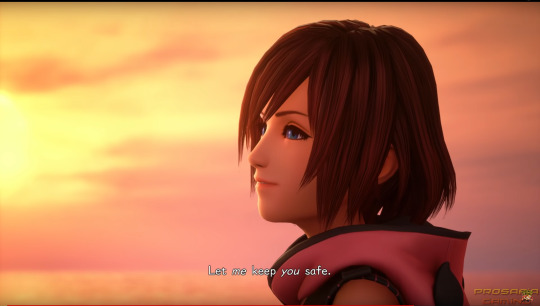
66 notes
·
View notes
Note
🎨 (ah i just saw this! if it’s not too late!!!)
Nik, thank you so much for sending this! It’s probably escaped everyone’s notice by now but this ask game actually expects me to pick one of your latest ten edits. I just thought that was worth pointing out because that is not happening with anyone else and it’s certainly not happening with you. I also usually try to put them vaguely in order of preference but not this time because they are all my preference.
SUN and MOON - Only the first edit I am going to review and already a Masterpiece. The gif layering! The animation! The use of colour! It’s all so pretty and well thought out. The first gif is probably my favourite of the four, it’s just so neat. The falling snow with the yellow filter over it almost looks like sparks, it adds to the pretty.
DIN DJARIN + Troubled Birds Memes / GROGU + Troubled Birds Memes - There are memes and then there are Memes and both of these posts definitely fall into the latter category. When I saw that gifset of Din and the troubled birds for the first time I was laughing so much, I was so tickled by the idea and how well chosen the quotes were. You have managed to have gifs with impeccable comic timing! The way that on some of them the whole quote doesn’t appear until just the right frame... ugh, it’s perfect.
I want more... and I know I shouldn’t. - I love the text effects in first and last gifs, the unexpected use of pastels in association with Darth Vader of all people! It works! The big letters in the boxes are really neat. The layering of scenes is perfectly done. They both bookend that glorious middle gif with the rippling water. I... I don’t know how you did that but it’s incredible.
KELLY MARIE TRAN - Oh how I love this! The way that you’ve picked a colour palette and stuck with it is fantastic. The second panel with the TVs is great and probably my favourite part, just such a clever idea and it’s coloured so well. The first and last panels with the torn paper to tie them together are really pleasing and how could I not mention her gorgeous angel wings and halo in panel three? This is just wonderful. It’s what she deserves.
Day 7: Free Choice - The way these panels are all so different in style and yet they go so perfectly together... I’m in awe. You just have a great instinct for positioning things within a space and using colour to its full potential. You’re amazing.
“Beopero? That’s how they say Pedro… on Mars?” - As usual I don’t know how you did this but I love how it’s animated. Just takes this post to a whole other level! The little “like” heart that pops up, the incredibly realistic swiping animations, and the cute videos! Excellent choice of posts as well and I love how you have coloured them.
Escalating degrees of laughter/wheezing - Gosh this gifset makes me smile so much! I love that I have something in common with Pedro, and that’s the wheezing and rocking back and forth when I am really laughing. I love that you have told the story of Pedro’s laughter, it’s not just a random collection of moments of him laughing, it’s in order of his self control. You’ve really thought about this. That’s very galaxy brain of you.
Kingsman: The Golden Circle (Agent Whiskey) - Sometimes on Tumblr.com an edit is so good, you remember the first time you saw it no matter how many more times you come across it. This is one of those times. This was my first time seeing rotating text like that and it blew me away. You know the best part? It’s seamless. These boots are made for walkin’ just goes around and around and Whiskey in the background just goes around and around and you don’t know where the gif actually begins. That’s brilliant. The text animation on all of these gifs is inspired but it’s the first gif that lives in my mind rent free.
“How would you like to ride home on a real cowboy?” - You... *through tears* made this. I love that you have used a more muted colour palette this time around - I associate a bright blue with Whiskey so strongly, it’s refreshing to see other colours with him. The ye olde Western style just works so well here. Each of these posters has clearly taken a lot of time and effort. I think my favourite is the first, it was just so unexpected but wonderful!
“They all hate you, Mando, because you’re a legend.” - This colour palette! The little animations! The glitching helmet! Wee Grogu and Din with shadows that overlap... oh the Symbolism. This is just perfection.
“Sometimes you gotta do bad things to catch bad people.” - Your poster series is beautiful! This is another favourite of mine. I love that the colour palette is the colours of the Columbian flag. His own words on his skin on the fourth one as he struggles to carry the weight of them... really powerful. The colourful silhouettes on the third, the way they move! And the relatively simple first one with that bright red. The use of black and white and shades of grey throughout, like Javi’s morality... Yes. This is the good stuff.
Purple Rain - Fun fact! This was the first edit of yours that I ever saw (on 11th March, please write down our anniversary for future reference) and I loved it! It was so creative, I thought. Using the photo of him in the water was very clever. I naturally have a soft spot for this one. :)
If you don’t accept me for who I am with my frog then… go away. - This post baffles me. Where are the notes!? I thought this was funny! Din loves him despite the warning signs frog. The frog in Tom Holland’s mouth has mysteriously disappeared recently... Grogu has declined to comment.
trust me, i went to college - Just a big “YEAH!!!” for this post. You have captured my thoughts completely. Why he so broaaaaaad? I love his floof. His happy crinkles. This!!! Yeah, this is a Good Post.
So, Nik, I have made it to the end of your creations tag. I have written this very long essay for you. Your creations here, what you can do with Photoshop, is just incredible. I barely mentioned how perfect your colouring always is but that’s because it constantly gets overshadowed by the creativity you pour into each of your posts. You’re always experimenting, trying something new, surprising us. You have just got a talent for this. You’re an inspiration to me and, I’m sure, many others. I wish you and your Photoshop program a very good day. :)
creators send me 🎨 and i’ll tell you my favourite of your last ten creations and why
#sith-maul#ask#i'm sure there are a million typos in this haha#it's the Gushing it messes with my brain#but i wrote every word of this for the love of nik!#🎨 reviews
3 notes
·
View notes
Text

Complete Tales & Poems by Edgar Allan Poe
"'For the love of God, Montresor!' 'Yes,' I said, 'for the love of God!'"
Year Read: 2020
Rating: 2/5
Context: Starting two years ago, I’ve picked an intimidatingly long classic to read over the course of a year. I have a problem with trying to read books as fast as I possibly can, so if I set myself a thousand page novel, I’ll try to pound it in a week, and it will just be a miserable experience all around. So, a year is a nice compromise. I’ve hit the major Poe horror stories in the past, and I’ve been thinking about rereading them, but I couldn’t decide where to start. Reread my favorites? Read the ones I’ve heard of? What if I’m missing something awesome? As usual, my go-to answer is to read them ALL. For more thoughts on individual stories, see my monthly blog posts. Trigger warnings: character death, torture, live burial, cannibalism, decapitation, animal abuse, injury, severe illness, racism/xenophobia, anti-Semitism, ableism, slurs, mental illness, bitter ranting from the reviewer.
Thoughts: My edition, with an introduction by Wilbur S. Scott, is probably not the edition I would have picked, since I prefer more notes or even essays to help me out with books that are 100+ years old. Context is helpful. Somehow though, my dad and I ended up with the same edition, so we decided to read it together. My dad loves all things horror (I come by it naturally), and we’re both longtime Poe fans, especially if you happen to put Vincent Price in one of his film adaptations. Scott’s introduction is particularly pretentious for a book we probably found in the bargain bin, and he manages to criticize the horror genre for not being “literary enough”. This is an Edgar Allan Poe collection, right? Way to alienate 90% of your audience right from the start. You can’t snub an entire genre and then attempt to explain why people like it. Like a lot of critical writing, it tells us more about Scott than it does about Poe, and I was circling his typos to entertain myself by the end of the introduction.
It did not get better. In short, I actively hated so much of this collection, and it's my most arduous and least enjoyed year-long read to date. To be even shorter, the only stories I found worth reading for pleasure were the horror ones I had already read and loved, and I'm afraid to examine too closely whether that has more to do with nostalgia and pop culture than the stories themselves. Poe has a way of lingering on pointless descriptions and belaboring a point to its absolute death, alongside an aggressively pretentious tone that suggests the narrator (and, by extension, Poe himself), knows everything there is to know about everything and you're an idiot for even asking. His true talent may not be horror, but in turning what might have been a good story into an intellectual soapbox and hammering it the point of absurdity. It would be different if the stories actually were intelligent instead of ridiculous. I’m happy to talk Aristotelian ethics, but the point is never to intellectually engage the reader–-it’s to show how clever the writer is.
On the whole, it seems like Poe struggles with telling a straightforward story, and I can’t tell if it’s because the short story genre has changed so much since then or because he’s so busy trying to show readers how smart he is that he forgets that stories have very specific components like suspense, exposition, or rising action (or endings). Most of them consist of some narrator speaking the entire time (I have all kinds of problems with this, from, “You just ruined the twist of your own story” to “No human talks for thirty uninterrupted minutes unless some idiot gave them a microphone.”), and few of them have anything resembling action, plot/character development, strong themes, or closure. There’s an essay-like quality to some of them (“The Imp of the Perverse”, “The Premature Burial”) where he seems to be trying to tease out a concept on an intellectual level, sometimes for pages and pages, before he remembers that he’s telling a story with characters and what could loosely be called a plot. I could do without all the intellectualizing, verbal grandstanding, and narrative cartwheels; just tell a good story, please.
And he does, sometimes. It's clear why Poe remains an essential part of the horror canon because those are easily the best stories in the collection, and I don't think that's just because I'm a horror fan. Horror seems to age better than some other genres because certain things remain consistently scary over decades or even centuries--being buried alive, for example. “The Fall of the House of Usher” is permeated by a feeling of bleak foreboding, culminating in some truly terrifying images, and “The Tell-tale Heart” is one of the better examples of Poe’s rambling narrator who thinks a lot of his own intelligence and slowly unravels over guilt. Both scared me to death when I was a kid, and I’m happy to see that they still maintain a high creep factor as an adult. (I also had the Great Illustrated Classics Tales of Mystery and Terror as a kid, because all a story about being buried alive needs is an illustration!) “The Cask of Amontillado” has long been one of my favorites (because there is something deeply wrong with me, probably), and “The Pit and the Pendulum” and “The Masque of the Red Death” are both top-notch horrifying, the latter a classic plague story that's a little *too* relevant to the times just now (but, you know, also one of my favorites). The clock symbolism is some of the best in the entire collection. Why, pray tell, would you be afraid of time?
The tolerable stories are the detective ones and the adventure ones, in that order. I can see why Poe’s detective stories like “The Gold Bug” and “The Murders in the Rue Morgue” spawned a genre. I was getting clear Sherlock Holmes vibes from his character, Dupin. However, it reaffirms that something is a classic because of its effects on literature as a whole and not because it’s still all that accessible. Just because something is the first of its kind doesn’t mean it’s the best of its kind; in fact, it usually isn’t because that was only a starting place. I can’t help feeling “Murders” would have been more compelling as a horror story than a detective story. Murdering gorillas are cool; listening to someone talk about murdering gorillas, much less cool. I was extremely irritated by his hot air balloon stories ("The Balloon Hoax", "The Unparalleled Adventure of One Hans Pfaall"), but apparently Jules Verne loved them, which makes a lot of sense. I was getting a lot of Verne vibes from things like "A Descent Into the Maelstrom" and even the utterly long, boring, and racist "Narrative of A. Gordon Pym." It's clear they had influence on other writers, even if they're not the best examples of their genres.
Which brings us back around to the bad. It's not worth my time or yours to list all the terrible stories in this collection, but I can briefly summarize what I found so terrible about them. First, Poe is tragically, emphatically unfunny. The things he seems to find humorous are either in very poor taste now (his tasteless descriptions of mental patients in “The System of Doctor Tarr and Professor Fether”), or they’re outright ridiculous, almost slapstick, like the woman who gets her head stuck in a clock and is subsequently decapitated by it in “A Predicament,” which is an odd sequel to “How to Write a Blackwood Article.” I’m sensing that Poe is making fun of intellectuals or would-be intellectuals here, but with so much time and cultural distance, it’s hard to tell. In any case, it led to a running joke (“I’m going out for groceries!” “Don’t stick your head in any clocks!”). Somehow, I doubt this is the major takeaway Poe was hoping for.
Worst of all, they don't age well on representation either. Poe seems at pains to offend every single minority he possibly can throughout his oeuvre. There are a lot of horribly racist depictions of African Americans, snide comments about Jewish people (or the much more obvious anti-Semitism in “Four Beasts In One” where a mad king has a thousand Jews killed--really?), and blatant ableism (“Hop-Frog”). It's at its worst in "Narrative of A. Gordon Pym," a novella that spans over a hundred pages, that is basically a tedious, xenophobic setup to paint the native population of an island as the most horrific and duplicitous monsters imaginable. (The narrator previously ate one of his shipmates, so can he really afford to throw stones here?) For inexplicable reasons, that story isn't finished, and by that point, I was grateful.
Poe's poetry is a little easier to work through than his prose. I love "The Raven" with its lilting rhymes and dark message, and "Annabel Lee" is very pretty, both ubiquitous in popular culture. I also liked "Dream-Land," "Al Aaraaf" (where Ligeia makes another appearance), and "Alone." Most of the poetry has pretty simple rhyme schemes, the subjects mainly love and loss. There's an excerpt of an unfinished play, "Politian," included as well, but it didn't make much of an impression on me. TL;DR: I stand by my initial opinion, which is to read his horror stories for pleasure and, possibly, his detective and adventure stories for genre purposes, and to skip the rest. I'll probably be looking for a smaller edition of the stories I like. This one is a massive hardcover, more like a book you put on your coffee table to look impressive than a book you actually read (but I don’t have a coffee table, so it’s actually just taking up more room on the shelf than any one book has a right to).
#book review#complete tales and poems#Edgar Allan Poe#horror fiction#poe readalong#2/5#rating: 2/5#2020#bookoween
11 notes
·
View notes
Text
Brick Club 1.7.4 “Forms Assumed By Suffering During Sleep”
Oh man this one’s long too, I’m sorry. I accidentally found a secondary source and now I have even more to say. I did have a lot of fun with this chapter though.
While looking up Antoine Albin de Romainville from the last chapter to see if that was a reference to something (it’s not), I accidentally found this essay, Jean Valjean’s Nightmare: Rehabilitation and Redemption in Les Miserables by professor Michael H. Hoffheimer. I’m going to write my own thoughts/impressions of the nightmare but I’ll also add in stuff that I think is cool/important from the essay. I’m just going to pick and choose bits because this essay has a lot of really cool things in it but I don’t really want to just summarize the whole thing in this post.
“This dream, like most dreams, bore no relation to the situation beyond its mournful poignant character, but it made an impression on him.” This sentence reminds me of Hugo’s tendency to say “this is not that important” or “we won’t spend long on this,” before spending a long time on something. Basically, Hugo says it bore no relation to the situation, which is a big alarm saying “but it’s very important to the establishment of what’s going on in Valjean’s subconscious!”
“It is one of the papers in his own handwriting that he left behind. We think we should copy it here word for word.” Again, another weird signal. Hugo doesn’t really break the fourth wall very much in this way. I often forget that he’s writing like a sort of historian of these characters rather than a regular narrator, and then a passage like this pops up. So I think this being written in Valjean’s own hand is important in a similar way.
Hoffheimer points out that written text documents in Les Miserables often signal an important change of events. He also points out that this is the only document in the entire novel that is written by Jean Valjean himself. He says “Transcribing the document reduces the narrator to the role of passive compiler who sheds omniscient access to Jean Valjean’s thoughts and acquires understanding of the dream’s content only by virtue of possessing Jean Valjean’s papers.“ Which I both agree and disagree with. I think that Hugo’s narration of Valjean is different from all other characters in the novel. Despite Valjean essentially being the true “main character,” Hugo often stays distant from Valjean’s true feelings. He will either tell us what Valjean is thinking but not what he’s feeling, or vice versa. It’s only in moments of intense distress, like these past 5 hours of pacing, that he allows us and himself access to both Valjean’s thoughts and intense emotions at the same time. Even when he tells us what Valjean is feeling, it seems a little more objective. I think what really makes me think this is Valjean’s monologues to Marius alone and then to Marius and Cosette at the end of the novel. Narrator-Hugo venerates Valjean, in a way, so that even when he’s describing how Valjean feels about himself, there’s a degree of sympathy and respect in the words. This is contrasted quite intensely with Valjean’s verbal descriptions of his own feelings about himself and his past, which are full of a level of guilt and self-loathing and negativity that we don’t get from Hugo’s narration of the same events. So I disagree (mildly) that the document places Hugo into the role of passive compiler without omniscience, because I think narrator-Hugo does that to himself throughout the entire novel. The description of Javert’s mental turmoil at the end of the novel is far more intense and viscerally described even than the turmoil we just witnessed Valjean going through. We know that Hugo has the capacity to delve deeply into Valjean’s psyche, to show us how he truly thinks of himself, but there’s always that moment of pulling back, of respect due to Valjean’s Goodness that Javert is not afforded in the end, and that is only exposed when Valjean gets the chance to talk about himself to others.
Something I’ve realized, after having read Les Mis and now also having read Last Day Of A Condemned Man, is that Hugo is incredibly good at writing nightmares. He should have written a dreamlike horror novel because every time he writes a character having a dream, it’s so intense. I’d love to see a short film portrayal of this dream.
This is the first time we learn Valjean had a brother. We know about his sister, with whom he lived. But when he was introduced back in 1.2.6, there is only mention of his parents and his older sister. This phantom-brother that we know nothing about and Valjean doesn’t elaborate on kind of reminds me of the way that religious figures call others “brother,” so I wonder if this brother is a kind of everyman for Valjean, either Champmathieu or the population of M-sur-M or both. This would make sense later on, when the brother disappears when Valjean steps into the weird empty road (which Hapgood translates creepily as a “hollow road”), since no matter what action Valjean takes, either Champmathieu or M-sur-M is going to vanish. Hoffheimer mentions that one of his other sources (Jean Gaudon) thinks that this dream-brother refers to Hugo’s life rather than Jean Valjean. Hugo’s brother Eugene was schizophrenic and spent most of his adult life in a mental institution. Hoffheimer also points out that a) Valjean could be interpreting Champmathieu as a lost dream-brother due to their resemblance both physically and geographically, and b) that long-lost-siblings are a theme in the Brick, with Gavroche unknowingly taking in his two brothers, as well as, in my opinion, Eponine and Cosette (who you could interpret as foster-siblings in childhood) encountering each other briefly in 3.8.8. Hoffheimer posits that the forgotten brother is another shade of a larger theme within the novel of child abandonment.
“Even while we talked, we felt cold because of that open window.” This is such an interesting passage because Valjean and his brother are presumably outside, walking, and yet it is because of the open window and not the wind or outdoors itself that they feel cold. It isn’t even necessarily the window itself that’s making them cold, but the thought of the window.
“He was entirely naked, ashen-colored, riding a horse the color of earth. The man was hairless; we saw his skull and the veins in his skull. He was holding a stick that was limber, like a twig of grape vine, and heavy as iron.” All of the other men that Valjean sees in this dream are earthen-colored, except this naked man who is the color of ash. He’s also the only one who has visible veins, a sign of life. He’s also the only one seen using a non-pedestrian mode of transportation, but the horse is still earthen-colored. I have no idea if this interpretation is anything at all, but I’ve just had a flash of a thought. It makes me wonder if this is actually Valjean, as he, like Dante, is the only living being in this dream. Here, he’s a living being stripped of both of his identities (he is not Valjean right now because Champmathieu is Valjean, and he can’t fully be Madeleine right now because of his awareness of what will happen to him morally if he decides to turn his back on Champmathieu), ashen-colored to match the items and identity he burned in the fire, being borne by a horse (Scaufflaire’s horse and tilbury and/or the potential death of another victim of society), holding a baton-like weapon of authority that exists in a liminal space of usefulness. It’s heavy like iron, but supple and limp and you wouldn’t really be able to beat someone with it. The only authority Valjean will have in the court at Arras is his word; even his word exists in a liminal space, since he has power and authority speaking as Madeleine but none while speaking as Valjean, and his identity in between falling asleep and arriving at Arras is trapped in this liminal existence of being neither person.
Hoffheimer says that one of his sources (Anne Ubersfeld) interprets the open window and the naked rider holding a limp-but-heavy stick as vaginal and phallic symbolism, respectively. He doesn’t really go beyond mentioning the existence of that interpretation, but honestly the pairing of the two made me go in a totally different direction. This open window could easily by a metaphor for the prospect of freedom, while the stick, heavy but limp like a chain, is a metaphor for its opposite: prison, the chain gang, labor for life.
“All was earth colored, even the sky.” This specifically reminded me of 1.2.8, when Hugo describes the “two infinities together, the ocean and the sky, the one a tomb, the other a shroud.” The sea and the sky are blended together into one singular color, one singular entity in that chapter. Here, it is the earth and the sky that are blended together. Hoffheimer points out that everything and everyone in this dream is earth-colored and lifeless, and at the end of the dream, it is revealed to be the world of the dead. This is so weirdly different from the dynamic nature of the sea-night world of prison that Hugo describes in 1.2.8. It’s weird choice because Hugo usually goes to water for imagery of both death and society (the sea-night of prison in 1.2.8, imagery from the Waterloo digression, the sewers, Javert’s suicide leap into the Seine). What’s interesting to me is that the water-imagery is all “real life,” even the imagery in 1.2.8, to some extent, since the prison is a galley ship. But Valjean’s unreal dream death-world isn’t water but its opposite, a totally hollow, silent earth. (Also, it reminds me of Hugo’s description of the dirt-covered cart in front of the Thenardier inn in 1.4.1.)
Valjean enters the village and assumes it’s Romainville. This seems to be real life details bleeding into his subconscious. But what’s interesting to me is that the only details that are identifiable as “from real life” are two people who are likely nearly vanished from Valjean’s memory: his brother and the neighbor woman, and the name of a town outside Paris that he has only vague knowledge of. None of these things seem immediately significant in any way to Valjean’s current dilemma. (The Hoffheimer essay also has a footnote that says that Romainville is mentioned later in the novel in 3.1.5 as one of the towns just outside of Paris where the universe stops existing for the Paris gamin population.)
(The Hoffheimer essay basically stops here and doesn’t really go into the nitty gritty of the rest of the dream.)
His entrance into the village, deserted but with open doors, feels to me like a twisted, surrealist dream-interpretation of Valjean’s entrance into Digne. Except when Valjean entered Digne, the town was “deserted” to him because no one would take him in, despite their being someone behind each door to answer when he knocked at them. In the dream, he’s able to enter any house, since all the doors are open, but there is still a man behind each one, though they do not interact or seem dangerous until Valjean leaves the town.
The layout of the house reminds me of the layout of Valjean’s experience of the Bishop’s house after he wakes in the middle of the night. The oratory where Valjean slept, the bishop’s room, and the garden. After waking, Valjean never enters the dining room. He goes from the oratory into the bishop’s room, and then back into the oratory and out the window into the garden.
It’s interesting to note that the first room Valjean enters is deserted, but after that, “behind every turn of a wall, behind every door, behind everything, there was a man standing in silence.”
“Only one could ever be seen at a time.” This again seems to reflect his identity dilemma: he cannot be both Valjean and Madeleine at the same time. He--and society--can only see one man at a time. There’s no way to reconcile between the two because they are in such drastically different places in society.
“They did not seem to be hurrying, and yet they walked faster than I. They made no sound as they walked. Suddenly, this crowd came up and surrounded me.” My immediate thought was that this crowd is society, catching up to and surrounding Valjean the same way that the ocean is a “populace of waves” aka society overtaking the drowning man in 1.2.8. But I wonder if instead, this is not society, but Life Sentence. Valjean knows that if he reveals his identity, he will be sentenced to life imprisonment. "The sea is the inexorable night into which the penal code casts its victims.” But this earthen, deadened, strange-headed crowd and the silent dirt-colored earth and sky, aren’t able to be fought like drowning. When you get a Life Sentence, you know that there is absolutely zero chance of returning to society, returning to the world, and having someone remember you. You are dead as soon as the sentence is pronounced. There is zero hope, zero chances, no chance that your memory will live on, there’s just emptiness. Every person in prison has different sentence lengths, they’re all trying to keep treading water until their sentence runs out or they can somehow thrash their way to the shore and escape. But everyone with a life sentence knows how long they’re gonna be there. The crowd isn’t society or the penal code drowning Valjean, the crowd is all the other life sentence prisoners, telling Valjean what he knows already. That as soon as that sentence is pronounced, he’s already dead.
“Where are you going? Don’t you know you’ve been dead for a long time?” Valjean, upon burning his passport and becoming Father Madeleine, essentially buried Jean Valjean. As long as he was living as Madeleine, he was also dead as Jean Valjean (and later, after the Orion, he will again be dead as Jean Valjean) which means that allowing Champmathieu to take his punishment for him isn’t re-killing Valjean, who is already a dead man, but killing a different human being. Valjean sheds and creates so many different identities throughout the book, but the only one he ever drags along with him is the carcass of his original self, Jean Valjean.
My mental image of this dream passage is so vivid, I wish I could somehow create it in real life. I imagine the entire thing is silent and muffled except the sound of Valjean’s weird dream-footsteps. And for some reason, of all the lines, “their heads were strange” is the one that’s most unsettling to me. Everything else is described in a fairly detailed way, but “their heads were strange” is so hauntingly vague.
(Side note: I don’t know who else doing Brick Club has read House Of Leaves, but this entire dream-passage reminds me of House Of Leaves. Especially the “Why Romainville?” aside, which is probably the most unusual phrase in the entire book, since Hugo doesn’t really use unanswered annotative asides like this anywhere else. That and the strange heads are the most unsettling parts for me, like the moment in HoL when Johnny finds the braille papers in the fridge.)
Also, I find it interesting that Valjean writes this dream down, but neither he nor narrator-Hugo actually attempt to dissect it or interpret it. Valjean writes his dream down, keeps the paper with him his whole life, and yet we don’t get him or Hugo telling us what they think it means. (I was really excited when I read the Hoffheimer essay and he pointed this out too!) The dream just floats there in the middle of the chapter as this moment of totally different, surrealist imagery, without heavy-handed metaphor. Because we always joke about how Hugo writes this brilliant and beautiful (if heavy-handed) metaphorical passages, and then supplements them with a giant blinking neon sign saying “Explanation Below!” But this is a metaphorical passage that doesn’t get that treatment.
The entire exchange between the old woman and Valjean about the tilbury reminds me so much of the exchange between Valjean and Petite Gervais. In both instances, Valjean and the other character are separated, by bushes and by the door, respectively. In both instances, Valjean is in a sort of strange trance, and the conversation is stilted and weird because of this. We get the parallel “What is your name?”/“Who is it?” question, followed by a moment of confusion. With Petit Gervais, the confusion and trance are manifested in Valjean’s silence and fixed stare at the ground. With the old concierge, it’s manifested by questions about the tilbury that he should know the answer to, but the trance means that he’s not remembering the instructions he had given just a few hours prior. Then comes a moment of realization, “Ah! You’re still here!” in reaction to coming back to awareness in the Petit Gervais scene and “Oh, yes! Monsieur Scaufflaire!” in the scene with the concierge. Petit Gervais can see Valjean, and his countenance scares him; the concierge cannot see him because they’re separated by a door, but Hugo says that “if the old woman had seen him at that moment she would have been frightened.” But Valjean makes different choices at this point in the paralleling scenes. Valjean tells Petit Gervais “You’d better get moving!” and stands up, frightening him so he runs away. After the realization of what he’s done, he runs after Petit Gervais, but it’s far too late. Here, Valjean seems close to sending the tilbury away, but instead he says “Say I’m coming down.” This time, it won’t be too late to right a wrong done.
And, more Dante references, although honestly they probably belonged back in the Scaufflaire chapter, but I didn’t notice until now. I wondered if the “two stars” thing might have a parallel in Canto III, so I looked, and it doesn’t, but I found something else instead. In 1.7.2, Scaufflaire says that in order for his horse to travel 60 miles in a day, Valjean cannot take a chaise, which would be too heavy; he must take a lighter tilbury. In Canto III, Charon looks at Dante, who is the only living being on the shores of Acheron, and says “By other windings and by other steerage/shall you cross to that other shore! Not here! Not here!/A lighter craft than mine must give you passage.” These are not direct parallels, but I think that it’s an interesting similarity, the insistence on lightness of craft. Scaufflaire is only Acheron insofar as he gives Valjean the tilbury in order to go to Arras, but I think it still fits.
4 notes
·
View notes
Note
Please elaborate on that The Idiot essay
Okay anon, ask and ye shall receive. Here is my manifesto on why I love The Idiot (1868-1869). Homoeroticism and me crying over Bakhtin under the cut.
Okay from here on out let me just warn you that there will be discussion of epilepsy, sexual abuse, violence against women, murder, and suicide. I never claimed it wasn’t a messed up story.
Let me start off by saying, this is not a good novel. It was written as a desperate cash grab by Dostoevsky after he and his wife Anna had had to move to Switzerland for financial reasons (they were rather continually in debt due to Dostoevsky’s gambling problem. In fact, they’d met when Fyodor hired Anna as a stenographer to help him write down The Gambler, the completion of which he’d bet all his rights to his published works on). The four separate parts are only loosely linked by narrative threads, things don’t follow the course you would expect from a work of literature, and the protagonist of the novel’s literal schtick is that he was supposed to be “a perfectly beautiful man”. Which, yeah, great in theory but in reality people don’t want perfect protagonists. The morals of the novel tend towards Dostoevsky’s own often troubling views of religion and morality, and it is a distinctly 19th century work.
And yet, it’s still one of my favourite things I’ve ever read. Not only are there some truly insane homoerotic moments in here, but there are some brilliant moments of play with narrative voice, society novel-esque shenanigans, questions about the nature of goodness and what that really means, and, of course, one really hot moment where a woman slaps a guy who’s being a dick in the face with a riding crop.
The loose plot of the novel is that Prince Lev Nikolaevich Myshkin, the eponymous idiot (and a holy fool, or as Dostoevsky once described him, “Prince Christ”), is returning to Russia from a period of many years in Switzerland being treated for epilepsy. On the train into Petersburg he meets Rogozhin, a young man who has just inherited an enormous fortune after the death of his father. They begin talking, and Rogozhin confides in Myshkin about his love for (read: obsession with) a girl known as Nastasya Filipovna. (This seems weird doesn’t it? Just confessing your major life problems to this weird guy sitting next to you on the train? Yea that’s just what people do around Myshkin). Upon arriving in Petersburg, Myshkin goes to meet with his distant relations, the Epanchins, to get to know them and form a family connection. The rest of the novel is these characters cycling through various love (?) plots, more random inheritances, people dying of consumption, going to stay in the country for a while Just Because, and other stereotypical 19th century novel things.
What makes it unique is that each character is their own person with their own thoughts, experiences and world views and the novel is these views interacting and clashing, or as Bakhtin puts it “a plurality of consciousness, with equal rights and each with its own world”. The characters are not there to help prove any thesis or idea; instead the thesis of the novel is how these characters differing views interact with each other. Myshkin is the lens of this, making it a picture of how each different character (or world view) reacts to his inherent goodness.
Of course, that’s all very... meta. Fun to discuss, but it doesn’t necessarily make the book fun to read. That’s where Nastasya Filipovna comes in.
Nastasya Filipovna, the girl that Rogoshin is “in love with” is a young woman who was born to nobility but orphaned and then sexually abused and turned into a concubine by her guardian Totsky. At the beginning of the novel she has escaped the control of Totsky and is in the incredibly tenuous situation of being provided an income from him for not completely destroying his reputation. A marriage has been arranged by Totsky (so that he won't have to worry about her any more) between her and this one asshole Ganya, but she has not agreed to it yet and has said she will announce her decision at her name day party.
At said name day party is where things get Crazy. She goes ham, mocking Ganya (who she knows hates her) for selling himself for the money promised in marrying her, verbally torturing Totsky, and generally saying fuck you to everyone while also tossing in a good amount of self hatred. Myshkin (whom she invited after meeting him once earlier that day for like five seconds seriously just role with it) declares quite earnestly that he thinks she is a good person and if she likes he’ll marry her amd also that he just inherited a fuck ton of money. Nastya is taken aback, and agrees to marry Myshkin. Then Rogozhin shows up (drunk, with the lads) and we find out Nastya has been planning all this. She tells Myshkin that she can’t actually marry him because he’s too innocent and she believes herself to be awful, and then asks Rogozhin for the money he promised her. Rogozhin hands over 100,000 rubles and Nastasya proceeds to toss them in the fire, tell Ganya that they’re his if he’ll reach in to get them out, and then leaves her own party with Rogozhin!!! I said this novel was batshit!!!!
Nastya through out the novel continues to be The Best Character, writing homoerotic letters to Aglaya Epanchina, who I FIRMLY choose to see as a lesbian, smoking cigars, and of course, upon hearing a man say of her “Here you simply need a whip, there’s no other way with this creature”, in return “she rushed to a young man completely unknown to her who was standing two steps away and holding a thin, braided riding crop, tore it out of his hand, and struck the offender accross the face as hard as she could”. Iconique. Of course, her story ends tragically but we’ll get into that later.
To quickly touch on Aglaya Epanchina, because I love her, she is one of the daughters of the Epanchin family, she and Myshkin almost get married, and she ends the novel by running off with a foreigner and becoming (horrified whisper) Catholic. Anyway she and Nastya have a brief but horribly gay dicourse where Nastya confesses her love (platonic of course. That is definitely how I, a lesbian, read this) for Aglaya and Aglaya refuses to believe her. Aglaya says she wants to marry Myshkin specifically because then she wouldn’t have to be a wife and a mother and could pursue what she wants and continue to learn. Also at one point Aglaya adopts a hedgehog. That’s Lesbianism Baybee. Her ending is supposed to be tragic but I choose to believe that her marriage is a lavender marriage and she and her gay husband are having wild fun around Europe. Let me have this.
Now for what you’ve all been waiting for — more homoeroticism.
Myshkin and Rogoshin’s dynamic is, like, fully insane. After their first meeting on the train, Rogozhin says to Myshkin “Prince, I don’t know why I’ve come to love you. . . . Come and see me, Prince. We’ll take those wretched gaiters off you; I’ll dress you in a top-notch marten coat; I’ll have the best of tailcoats made for you, a white waistcoat, or whatever you like; I’ll stuff your pockets with money”. Slow down lover boy you met this man five minutes ago and you’re already trying to sugar daddy him?? It only gets worse from here.
Part II of the novel picks up six months after the name day party. Rogozhin and Myshkin have in the intervening time “often happened to spend long hours together, and there had even been several moments during their meetings that had left an all too memorable imprint upon their hearts”. Yeah. It’s also said that Rogozhin is jealous of Myshkin maybe holding some of Nastya’s affection but like. It just reads a lot like Rogozhin is torn between Nastya and Myshkin, which he is in a way because being in love with friends with Myshkin and Nastya (lavender) marrying Myshkin (that’s not an exaggeration it’s basically out right stated that if Myshkin and Nastya married they would not have sex), would mean giving up the weird destructive obsession he and Nastya have with each other. This is supposed to imply coming to Jesus. I take it as accepting your homosexuality because Dostoevsky is dead and I can do what I want.
So Myshkin shows up at Rogozhin’s house and things are a bit awkward (Rogozhin has maybe been stalking Myshkin??) His “affectionate” smile is described “as if something had been broken, and try as he might, he was unable to glue it back together.” Anyway.
They begin actually talking and oh boy. I’ll just present these without comment.
“I’ve come to bring you peace, because you, too, are dear to me. I love you very much Parfyon. And now I’ll go and never come again. Farewell.” “‘Stay with me a little’ Parfyon said quietly, without getting up from his place and leaning his head on his right hand, ‘I haven’t seen you in a very long time.’”
“When you’re not in front of me, I feel spite for you Lev Nikolaevich. . . . Now you haven’t sat with me a quarter of an hour and all my spite is gone, and I love you like before. Stay with me a little . . .’”
“Nobody’s asking our opinion. It got decided without us. And we love differently too.”
“I didn’t want to come here! I wanted to forget everything here, tear it out of my heart!”
Not to mention the jealousy Rogozhin has for the perceived relationship between Myshkin and Nastya. Hmmmm. Anyway after all That, Rogozhin insists that he and Myshkin trade crosses, his golden one for Myshkin’s tin one.
And THEN Rogozhin proceeds to stop Myshkin from leaving again, and takes him to get his mother’s blessing, which is the same thing he did with Nastasya!!!!!! I feel insane.
After this Myshkin returns to his hotel but then Rogozhin follows him and um. Tries to stab him. With the knife that’s been built up as a phallic symbol through the whole novel. But then Myshkin falls into an epileptic fit and Rogozhin flees. Like this is deeply fucked up but What The Hell am I supposed to be thinking rn??
Anyway the next time they meet it’s in the countryside and Myshkin has fully forgiven him for the murder attempt. Indeed “struck by Rogozhin’s sudden appearance, the prince was unable to collect his thoughts for sometime, and a painful sensation rose again in his heart.”
Rogoshin has apparently not forgiven himself for trying to kill Myshkin, to which Myshkin responds “all that you went through that day I now know as well as I know my own self. What you were imagining did not and could not exist.” *jenny slate scream*
Myshkin proceeds to invite Rogozhin home with him, saying “I have some wine, we’ll drink wine, you must wish me something I myself don’t know how to wish for now, and it’s precisely you who must wish it, and I’ll wish you your fullest happiness. Or else give me back my cross! You didn’t even send it back to me the next day! You’re wearing it? Wearing it even now?” and THEN he says “I don’t want to meet my new life without you because my new life has begun! Don’t you know that my new life begins today?” and then they head home together.
Okay skipping over a bunch of stuff because 1) I havent read the novel in a year and while i know there’s more stuff in there I don’t know exactly where and I don’t want to be flipping pages for another hour and 2) this is already insanely long so. For context in the intervening time Rogozhin and Nastya do end up getting married (which everyone including the two of them kind of agree that it’s just a way for them both to kill each other/basically comit suicide. Fun!). So that’s exactly what happens, and Myshkin runs to their house, arriving too late and finding that Rogozhin has stabbed Nastya and she is dead. Thus ensues a scene that makes me so insane I cant... look here just take this:
“‘So let her lie here now, next to us, next to me and you...’
‘Yes, yes!’ the prince agreed warmly.”
And
“‘I’ll make up the bed and you can lie down... and I’ll lie down with you... and we’ll listen... because I don’t know yet man... I don’t know everything yet, man, so I’m telling you about it ahead of time, so you’ll know all about it ahead of time...’”
And
“But two people could not lie on the sofa, and he absolutely wanted to make up beds now side by side, and that way why, with great effort, he now dragged pillows of various sizesfrom both sofas all the way across the room, right up to the opening in the curtain. The bed got made up anyhow; he went over to the prince, took him tenderly and rapturously by the arm, got him to his feet, and led him to the bed”
And
“[Rogozhin was] laying the prince down on the left, better, pillows, himself on the right”
And
“‘What did you use? A knife? That same one?’
‘That same one’”
And
“The prince would reach out his trembling hand to him and quietly touch his head, his hair, stroke it and stroke his cheeks... there was nothing more he could do! . . . and pressed his face to the pale and motionless face of Rogozhin; tears flowed from his eyes onto Rogozhin’s cheeks”
And
“He quietly hastened to pass his trembling hand over his hair and cheeks, as if caressing and soothing him”
And then the cops show up and there’s a brief epilogue talking about how everything is terrible now and Myshkin goes back to Switzerland because he’s incoherent with grief. Insane.
So there’s also a lot in this novel about what is actually good, and how people react when confronted with goodness, etc. etc. but this is five pages in google docs and I need to. Stop. Anyway if you made it to the end cheers this novel is awful and insane and I love it. Dostoevsky do not interact I hate your crusty ass even if your prose makes me feel things.
#gabby.txt#mail#anon#the idiot#anyway sorry this took so long but ah. yeah.#i have a lot of Thoughts#literature#Anonymous
42 notes
·
View notes
Text
Alright, I’ve just spent 17 hours absorbing the epilogue, and in true Dirk Strider fashion, I have Thoughts.
I had plenty of responses I’ve been considering to this, about two hours ago I was honestly thinking of just dropping in with a fuckin one liner like “So Dirk Three wrote the epilogue” (Dirk Three kinda did write the epilogue, and I’ll explain that too), but we’re on the fucking essay train now and no one’s getting off it any time soon so it’s time to dive into this fucker and get it all off my chest.
Under the cut you will find essays on Dirk, cherubs, ultimate selves, both major Dirk fics (Detective Pony and Theatre of Coolty), a bunch of story bullshit, and my severe love for all Homestuck characters
(But very little criticism of the epilogue, I am no longer about that life)
So the prologue is important here. It’s the main bit of accurate information we have, not tainted by an unreliable narrator. (Well, it is, but less so). The prologue tells us that, with the characters outside of canon, they are becoming their ultimate selves, particularly the characters most susceptible to such knowledge, like seers, or heart players.
Now Homestuck wrestles a lot with the idea of the ultimate self. It is, as defined by the text, the true thing a person is, an amalgamation of every possible version of themselves. It is not a viable human being, because that’s not how human beings work. It basically amounts to Hussie’s character rules, like, there are some ways that these characters will be always, some things they’re prone to, things they like, decisions they’re likely to make, but who the person is within that is subject to extreme change depending on circumstance. The four people who embody this narrative most clearly are Vriska, Terezi, Davepeta, and Dirk.
I’m still not 100% sure on why the ultimate selves outside of canon thing is, but my best guess would be this - within the story, there’s a definite timeline, right? Like, these are the things that are written down, this is what you can see, the word of god (loaded phrase, thanks Dirk), the things that you look at when trying to apply death of the author (even more loaded phrase, thanks Hussie, also thanks Calliope). There’s more than one timeline, sure, but that’s the point, everyone is who they are within that timeline, affected by what happened to make them who they became. Outside of canon is, well, outside of the story. They’re not affected by the story here, they’re just characters. This is a fanfiction site. And what does fanfic do best? It takes the characters, takes who they are, pulls them out of the story, and shoves them in wherever it likes, to become whoever it is they become. And thus who the character is exactly becomes murky and confusing if you’re trying to jam them all into one thing, and it all gives Rose Lalonde a headache. Ultimate selves.
Davepeta liked their ultimate self, it helped two kids who were otherwise struggling with unsatisfying ultimate selves to become a better whole.
Vriska took the proactive approach, by which I mean bullying her other selves into letting her become the ultimate Vriska, which was ultimately useless and gave her no ultimate self at all
Terezi saw her ultimate self, and is still processing what that means for her (but also Terezi is still in canon, so she’s immune to epilogue bullshit)
And Dirk, god, poor Dirk. Dirk was terrified of it. Because he could see his ultimate self and he knew that’s not the kind of person he wanted to become. (And this is where I start using the Theatre of Coolty numbers because there’s no other way to get through this, if you haven’t read/seen it you 100% should, but as a general note, Dirk One is the main Dirk we know, Dirk Two is Brain Ghost Dirk, Dirk Three is “Trickster Dirk” but actually revealed later to be Hussie, Dirk Four is Hal)
Because here’s the thing. Dirk’s ultimate self is him, but it’s also Hal. It’s also BGD. It’s also Bro. And Dirk One was never as bad as he thought he was, but he surrounded himself with copies of himself, so he knew how bad he could be, and tried everything he could to avoid it. We have actual canon confirmation on multiple occasions that Dirk would so much rather kill himself than become the kind of person capable of hurting his friends. Which only got worse after he met Dave and realised Bro existed, like, that just doubled his resolve to Never Be That Person.
(Hey, fun hypothetical, if you kill yourself to stop yourself becoming a bad person because you know it’s inevitable but you’re too good a person to want to go through with it, is it heroic or just? Because I would like to have a lengthy discussion with the god tier clock!)
God, there’s so much I can write on the subject of Dirk’s ultimate self. Because you can see every version of him inside there, there’s Bro in his possessiveness, Hal in his need to fuck with people for no real reason, BGD in his hyper critical nature (beyond what is normal for all Dirks), Dirk One in his desire to never let anyone hurt him again. (God, the “I’ll never let you break my heart again” line hurt so much, because like… I can feel Dirk One in that line, but it’s delivered by ultimate Dirk, and ultimate Dirk isn’t the kind of person who would have even been heartbroken by Jake’s actions. Dirk One poured his soul into that relationship and Jake responded by ignoring him, and like, this isn’t a dig on Jake, because that did make Dirk very intense and hard to deal with, but as Calliope so beautifully put, the children left alone are those who most despair at being ignored. And every version of Dirk was so very alone.)
When sending initial thoughts to my friend, I wrote “Ultidirk is Dirk One but without the compassion or empathy and with an apparently infinite supply of horse tranquilizers”. Which was mostly a joke, but does get down to the core of the problem. Dirk One and Ultidirk aren’t really that different, when it comes down to it. But there’s one crucial element that makes all the difference. Dirk One’s life philosophy is “This is a me problem, so I’m going to do everything in my power to make sure you don’t have to deal with that problem, at any cost”. Ultidirk’s life philosophy is “This is a me problem, so I’m going to make it everyone else’s problem. And it turns out that without basic human empathy and morality holding him back, Ultidirk will just… fucking declare himself God, and use that alongside his powers of manipulation to just write a new story in which he is the villain. Very little changes in the scale of things.
(The other main difference is that Dirk One is scared to exist, whereas every other Dirk is scared to not exist, that’s the stuff, good callback, etc etc, that line fucking killed me, and also killed whatever remnant of Dirk One was still lurking inside Ultidirk and god I want to hug him)
(I also want to extract him from Ultidirk and bring him on an Ultidirk murdering quest bc he would be 100% down for that without a second’s hesitation but that’s a bit hard to do)
Now you may be wondering why I brought up Theatre of Coolty if I was only gonna refer to Dirk One as Dirk One and not touch on any of the others. Well, it’s true, saying Dirk Two and Dirk Four when I have simple three letter names for both of them is a bit ridiculous. But then we get to Dirk Three.
Now here’s the thing about Theatre of Coolty. Dirk One appears in Homestuck, as alpha Dirk, in Dirk’s usual shirt with the orange hat. Dirk Two appears in Homestuck, as brain ghost Dirk in god tier pyjamas. Dirk Four appears in Homestuck as Hal, and he wears a red hat because he’s Dirk in a different colour scheme, also because the sprite Hussie eventually made for him based on fanon had a red hat, all’s sorted there.
But Dirk Three? Trickster Dirk? Never appeared in Homestuck. They tried, but it was still Dirk One. Dirk is immune to cherubic influence (remember this point too, it’s important), because his concept of self is so present (and also because he’s depressed as fuck, but that doesn’t necessarily exclude you, it’s just the presence of both at once). And who does Dirk Three turn out to be? Well, they said it from the start, Theatre of Coolty is about the presence or absence of god, who definitely will show up at some point. Dirk Three is Hussie in a Dirk costume, Dirk Three is God, Dirk Three is The Author.
Dirk Three is Ultidirk. Congrats, all four Dirks have officially shown up in Homestuck, to whatever extent this counts as Homestuck, an extent which has been thoroughly documented by its own existence bc this is Homestuck (kinda) and you gotta lean into the bullshit or you’ll drown in it.
So yes, this was penned by Dirk Three. Who is also Lord English in two different metaphorical ways now (The trickster element, and also the fact that the epilogues insist on making Jane a second Condesce, which in this analogy puts Dave as himself and Dirk as, you guessed it, Cherub Master of All. Which is additionally insulting as fuck because Dirk grew up in that apocalypse and would never contribute to recreating it, if Jane ever was inclined to, which she isn’t, but you know).
And LE’s major force of opposition? Adult Calliope. (Also, like, Vriska, but symbolically it’s the other cherub.)
Which brings me to the main point of this essay, and that is that all of this? It’s a cherub fic. And we knew this, from the moment we were offered that choice. Meat or Candy? Well, neither of them are sustainable food sources for humans, not with the meat uncooked like that. They’re not satisfying endings for us either. But it’s all cherubs eat. (Well, that and special stardust, but that was Caliborn’s intermission. This is Calliope’s offering.)
Which again feeds back into the AO3 metaphor because from their introduction, Caliborn and Calliope have been fandom inserts, representing all of us, for better or worse. They read the story, come up with the theories, they write the fanfic.
And Calliope’s trying so hard. But she’s not human. She doesn’t get it, not on a way that connects with the characters, only with the text. Cherubs spend their lifetime alone. Cherubs only have black romance. Cherubs think trickster mode is an acceptable way to solve problems.
And, as Dirk pointed out back when he was still himself, everyone getting married and having a bunch of babies for no reason doesn’t solve shit.
Without a solid timeline, everyone became susceptible to becoming their ultimate selves. Ultidirk is a dick with the powers of actual capital g God, and none of the remorse of Dirk One, so he took control of the narrative. And so Calliope, the fanfic author, the one with the power to write a new story (with the exception of Dirk, as previously mentioned, he’s immune to cherub bullshit, and John and Terezi, who are still in canon), tried to help everyone realise their full potential.
But she made them selfish. She made them solitary. She doesn’t understand how humans work, so they became parodies of themselves. In meat, there’s a plot, but it’s insubstantial, because no one is truly themselves, facing a Dirk who lost himself years ago. In candy, it’s fluff with, again, no substance. It’s trickster mode calmed down. Everyone gets married and has babies, but it makes no sense, and everyone’s miserable.
And John Dirk and Terezi are the only ones who see it, because they’re the ones who haven’t been given to Calliope. But what’s the point, when they’ve lost their power over the story? What’s the point of gaining power if you’re not yourself anymore? (And one way or another, they all die in the end.)
The rest of them… Well, they do the things the narrative implied they would do, but usually in the worst possible way.
(Aradia and Sollux have been canon neutral since 2011 and they like it that way)
And now we go back to Detective Pony, like everyone and their mother have analysed already. Because yeah, these two things have so much in common, but also, some really crucial differences.
Both are stories in which Dirk takes control of the narrative, in which he is fought for control by another author figure, in which he considers his own role in the story, what he’s created, who’s got the authority (I still love that pun so much), and eventually forces the characters to come to the conclusion that he needs to be defeated, because at the end of the day Dirk is still hopelessly suicidal and like most problems the kids have, this is never addressed outside of ironic bullshit. (Not to him anyway, it’s kinda addressed in candy but I think if you’re talking about someone’s suicidal tendencies at their funeral it’s too fucking late).
But Detective Pony is ultimately a heavily veiled love letter to his friends. Detective Pony is Dirk exploring what he fears becoming, it’s him learning to let go, and eventually he relinquishes control of the book to the characters in it (as does Jeanne Betancourt).
Meat is Dirk’s notice of ownership over his friends. It’s him glorifying having become that thing he used to fear, it’s holding even tighter to everything he fears losing, and ultimately neither he nor Calliope trust the characters enough to pull back. They’re both obsessed with it, in both iterations, this battle between the two of them, even though it was never supposed to be about either of them.
But Detective Pony has an original story, with a timeline. It even has a second solid story for Dirk to come from, since Homestuck itself explicitly states when and why Dirk made it. When Detective Pony sits down to analyse which version of the text is better, it has that substance to fall back on. Jeanne Betancourt’s version is boring but kind. Dirk’s is interesting but cruel. And because the characters are all solid people, not their hazy ultimate selves, they have agency too, and can decide their own fate.
When Dirk analyses whose version is better in the epilogue, his whole reasoning is that neither is good. The characters rarely have any agency. Even the few moments, between Roxy’s void powers and Dave’s ability to stand up to Bro (which, by the way, so proud of him, how many people do you know who, in a situation where their childhood guardian and abuser literally became god and tried to thought influence them into doing something they kinda wanted to do already, would have the mental resilience to say “no, this isn’t me, stop that” and stand by that? Dave is the strongest goddamn character in this whole comic, holy shit), are only hints of who they were as real characters in the story. Dirk takes control, in one version, because he’s lost himself to Ultidirk, who’s overly concerned with how stories are supposed to be written, and tries to wrestle Homestuck into a shape he finds interesting. In the other, Dirk kills himself before he can hurt anyone. (And before anyone gets on my case about Dirk’s reasoning being he’s lost his purpose, his purpose was always protecting his friends.)
But Calliope’s not helping them either, just piling them full of romance and fluff and selfish parodies of themselves and thinking that’ll work out. Giving the villains “redemption” without ever actually letting them redeem themselves. Explaining all about their tragic backstories without doing anything with it. To bring back a very old quote, it’s like when Mario gets the star. He wins, but he’s denying himself many powerful moments of catharsis.
Just with less happiness, more death, and a bunch of weirdly political teen drama. And then when Calliope gets distracted by Ultidirk and gives up, everything unravels completely, but it also lets them live a life which does let some of the characters be happy, in a weird roundabout way. It’s dysfunctional as fuck, but these characters care so much for each other, not even being in a weird self melting fanon bubble could erase that completely. (And then things get buck fucking wild because this is still Homestuck we’re talking about)
(Though seriously, I could have done without the Jane is a fascist thing, she deserves better than that. Like what was the point of decrockertiering her if she was just gonna go right back to that? Also I love Dave but he barely has a leg to stand on in most of those political arguments anyway given how he completely destroyed LoHaC’s economy and once accused Karkat of communism for captchaloguing a chair. And while I’m complaining, Jake English is still not being allowed to consent to fucking anything.)
I’m not sure why this was written. I’m not sure why a lot of things in Homestuck were written, honestly. It’s certainly not a satisfying ending, but I don’t think it was supposed to be. It’s not disappointing either, and it’s definitely interesting, with all of Homestuck’s trademark humor.
When I first wrote this halfway through candy, I’d written the following as an ending:
“But if we’re going to triple kill the author, I think this is just ultimately validating everyone’s own interpretation of the ending. You can’t write everyone’s fanfic at once. You can’t be a cherub, or a god, we don’t write fic about people’s ultimate selves. What you can do is provide a timeline for them to exist in, and a better one, where they have a chance to be the people they have the potential to be. And just to be happy, in a way that feels real.”
But honestly, now? I think the point was just to fuck with us, and also do a fuckton of exposition about canon and the nature of reality
So fuck it, let’s end on a relevant Dirk quote

#upd8#upd8 spoilers#homestuck#homestuck epilogue#dirk strider#calliope#john egbert#roxy lalonde#terezi pyrope#vriska serket#dave strider#jane crocker#jake english#karkat vantas#aradia megido#sollux captor#yeah thats probs enough character tags#this is all you're going to hear from me on the epilogue i think?#im not really feeling like debating it#just wanted to say my piece and go#but yeah im gonna go reread dirk fic now i guess#or sleep i've been reading this for a straight 17 hours#peace out#words#oh yeah#caliborn#lord english
739 notes
·
View notes
Text
Distant Connection - 7/11
Pairing: Bucky x Harmonia (OC) Warnings: mentions of wicca/witchcraft, mention of parents death, gossiping about main character Summary: After an unknown group of goons took her mom’s life and tried to get her for the dark magic powers she possesses, this untaught witch is saved by the Avengers and brought to the compound where her new life unfolds.
MASTERLIST || Distant Connection Masterlist
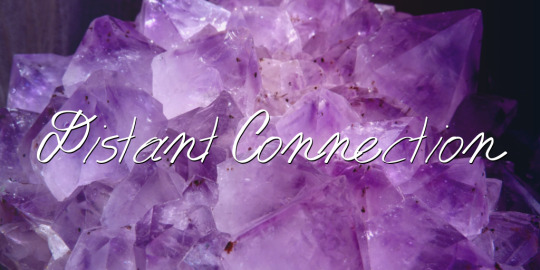
After waking up pretty early again Harmony decided to go to the stone circle outside of the compound again. Something about this area in the early morning hours was deeply relaxing. She climbed up one of the rocks and sat on it with her face away from the building. She had a nightmare that night about seeing people dying and it still didn’t fully leave her system. Gore wasn’t something she usually dreamt about. She didn’t even watch horror movies. She had her little journal with her and wrote the rest of her erie feeling out of her system. Steve was watching her from afar after he finished his morning run. Something about her today was different. He could feel it and see it in the way she acted. After a while, she jumped down from the giant rock to put her journal back into her backpack and started training a bit. Seeing her pick up those gigantic rocks with her powers made Steve drop his jaw and as soon as she kicked it the opposite direction of him he got the chills. Training alone gave her some kind of balance that made it possible for her to cry. If the anger could leave her body, the sadness could go too. After watching her for a while he saw her picking up her things again and left for his room to not make her feel uncomfortable.
After a shower she picked up her sketchbook and some art supplies and left the compound to go to the tower again. She didn’t even think about the plans she made with James for the morning, she just needed a different environment to get her mind off things. She walked in to a few college students learning for their exams and two high schoolers hurrying to leave because their next lesson would start soon. After grabbing a snack she sat down in front of one of the laptops in the computer room and opened her book of shadows on a new page to write down the symbolism of her dream. There was something very soul-cleansing about spending the evening before and this morning alone with herself and her thoughts.
Someone sat down next to her while she was deep into reading an article on coping through dreaming. “Is everything okay, Harmony?” Steve’s voice asked beside her.
She looked away from the screen and at him, “Yeah, just need some alone time. Why are you asking?” “You are so different today. I saw you train and you were...not like you usually are,” he answered softly. “I had a nightmare but I’m fine. Promise.” she gave him a weak smile but she meant it. He put a hand on her shoulder, “I’m always here if you wanna talk about it, okay?” She nodded, “I know. Sometimes I just need a bit of time to understand things myself.” “You wanna be alone now?” He asked empathetic. “If you wanna stay you can. I don’t mind. Just don’t interrupt me too much.” She smiled before she got a nod and looked back onto the screen. The morning hours in the tower were actually quite nice, not a lot of people and still a lot of inspiration from Midtown Manhattan outside. Steve was drawing again, this time with markers, and she went on with reading about PTSD and other mental health things. The only sound interrupting the silence was her regularly eating a date from the snack package she grabbed or the closing and opening of a pen. “You know...he’s the old him around you,” Steve said out of nowhere after closing a marker. “I know. He just...he’s home,” she described it back to him. “And the only times you have a generally positive look on your face is when he’s around.” He went on. “You can be lonely in a room full of people until the right person comes around.” She smiled softly at the thought of the evening before. “You love him,” he said with a soft and knowing smile back. “Yes. Yes, I do.” A dumb little smile formed on her lips after saying that out loud. “He loves you too.” He opened the next marker. “I know.” Her heart made a little extra jump. “Why that?” He asked with a grin knowing that she was either about to list all the ways he made her happy or tell a great story of him admitting his feelings somehow. She opened her sketchbook on the page he had drawn. “That’s why you weren’t mad at him when you came out of the elevator.” He realized. She giggled and nodded at his little realization. “He can be really charming if he wants to, huh?” He joked about his friend. “Truly, with a little pinch of being afraid of me throwing him across the room with my magic...which I won’t say that it happened but I don’t wanna lie either.” She was back at her normal self again finally. Both of them started chuckling before they heard footsteps in the door, “It was her learning self-defense may I add.” James said with a smile. Her whole face lit up even more when she saw him there “What are you doing here?” she asked while pointing at the chair left to her. He walked over with a, “My two main idiots aren’t at the compound. Of course I look for you here after you told me about your art sessions. Turns out they are also gossiping about me sessions.” He winked with a smile on his face. Before sitting down he leaned forward and softly pressed a kiss onto her lips. This was the most perfect situation. His best friend deserved to know first and he was the most comfortable doing this in front of him. With one of his typical Steve smiles he asked, “How long have you been doing this right in front of my face without me knowing?” “Since the elevator incident,” James answered. “Great. Makes me feel really good about myself that me scaring you, kissing you where Steve can’t eavesdrop and you telling me my art is better than Steve’s is ‘The Elevator Incident’,” She chuckled. Both men started laughing loudly at her little sassy moment. “With a witch and an assassin, everything has a code name or is an incident...or both,” James said shrugging and smiling. He was sitting with his body towards her and his hand on the table in front of her where she grabbed it. He didn’t stop his breathing this time. Something about her warm hand on his cold one was calming him. “Actually...I made a painting of that incident.” She flipped open the page with her free hand. “That’s pretty.” James smiled at it and leaned forward to kiss her head. “Of course you like a painting of yourself dude.” Steve laughed. “It’s called being grateful and in love Steve!” He said giving him a slight punch on his arm with his free hand. “You sure you both aren’t blood-related?” She looked at both of them with a soft smile. “Nah, I would be way more of a dumbass if I was related to him.” James started. “But also a little more artistic.” Came back from the other side. “Damn, that hurt.” He said fake offended. Harmony just shook her head giggling, “I went here to learn but that’s impossible with two idiots left and right from me.” Their little chatting session was interrupted by a lot of school kids coming in. School was over for most of them and she realized how long she had been sitting there with Steve before James came.
The girl from last time sat down across from them with a little smile at Harmony. “Hey Lydia.” Steve beside her said with a smile. “Oh, she really came to you for help, huh? Told her you were a complete dork.” Harmony nudged her elbow into his side. “He is.” Came back with a bright smile. “Can we help you somehow?” She asked her. “Not unless you wanna write an essay about pop culture and its influence on spirituality in the last 10 years.” Came back a little bit exhausted. “I know a lot about it but really wouldn’t know where to start with it. Let me know if you need my help when it comes to nature religions and witchcraft.” Harmony answered. Her eyes got a little bigger when she heard witchcraft. “Wait. Tell me a little bit about witchcraft cause that’s something we didn’t talk about and that could get me a straight A.” She was excited all of a sudden. “Sure.” Harmony grabbed her book and came over to her to talk about her experiences with witchcraft. The two men just sat across from them staring for the longest time until Steve continued drawing and James stole her sketchbook and drew something into it too.
“Can I ask you something?” Lydia almost whispered. “Sure.” Harmony smiled knowing some weird question was about to come. “Are you...an Avenger?” Not what she expected. She shrugged her shoulders “Ask Tony. I can throw this one across a room,” She pointed at her boyfriend, “so I’ll assume yes.” “I didn’t defend myself. Just for the record,” he answered from the other side of the table. “No, you were distracted and called me a dork, remember?” She chuckled. “Yes, that shit hurt.” He almost mumbled it. “Too old for the job, huh?” She poked fun at him. “Don’t get too confident over there, little witch.” He smiled a heartwarming smile. “I’m always confident...soldier boy.” Her eyes narrowed with a smirk. “Get a room!” Steve now commented with a big smile on what happened in front of him. “Remember that both my room and his room are super close to yours? I think you would still hear us...talking.” That was a saved sentence there, the girl didn’t need to know about this. The little smirk that instantly vanished again from James’ face was only noticeable for her. “So...you are an Avenger? Cool.” Lydia smiled at her a little bit in awe.
#mine#bucky x oc#oc x bucky#bucky barnes x oc#oc x bucky barnes#named!reader#named!reader x bucky#bucky x named!reader#bucky barnes x named!reader#bucky barnes#james buchanan barnes#the winter soldier#mcu#marvel#marvel cinematic universe#bucky fanfic#bucky x harmonia#HarmoniaGaiaCollection#Harmonia Gaia Aphrodite#Harmonia Universe#james barnes
13 notes
·
View notes
Text
if y’all ever wanted to know anything about me... i tried

hm I’m bored (i say this as i should be doing geometry homework
1. read: probably the paladin prophecy, or the finisher (just books i’ve read like 500 times, idk about understanding but--) watch: the vampire diaries? (idk i watched the entire series in 7th grade wygonnad) or aquamarine movie? listen to: XYLO, LUME, more specifically Need Nothing by Verite
2. bro i have no idea who they are actually but I’ve seen like 2 fanfic writers who write exactly like me and seem to think exactly like me i love that. also a reg writer? uh probably mark frost? i aspire to write like f scott fitzgerald but it never gonna happen hun (cos i wanna major in physics not literature lmao)
3. holy fuck lets pick like 3 fandoms, aight? uh first lets go w my hero academia? tokoyami ofc? next... percy jackson bich-- nico LMAO no maybe bianca? hm HARRY POTTER -- ginny prolly although i dont want to date harry (oops) The maze runner? tommy actually ;; naruto? fucKINH ROCK LEE BABE uhhhsdfhh star wars is anakin and voltron is lance (or pidge actually) i should stop buuuut yeao ok
4. i think my name is fine but i aint gonna share it here (also kinda wish my nickname was charly though thats all im gonna say ALSO yes laurel is a faux name yes
5. human being because i do nothing. lol but yes i think that who i am as a person should be based off my actions, for it is how i act that shows other people who i am, not ‘who i am inside’ dont make fucking excuses for your actions people
6. yea i believe in 1 god and i was raised as a catholic christian but i am accepting of all religions and views
7. i mean kinda??? idk im very polish and so i eat lotta polish food (gr8 stuff right there) but im just american so yea
8. muscial artists, well bitch i only started actively listening to lots of music (aka spotify) like last year but i listened to ari grande when i was young ofc but i dont rlly feel connected to her. maybe like, adele? probably her yea
9. yes i am a visual artist (preferred medium is watercolor) i looooove singing although i suck so i just do it for fun, i played the french horn for 2 years (also suck so not really lol) um i also write for fun and im good at writing informative essays (my school is big in the english program lol) i was also in 3 plays but i dislike theatre so no. also i like clothes i am a fashion artist wow
10. tf? idk? i have like 3 mottos: “if you want something done right, do it yourself” “the answer to existence is not why we are here, but how we affected others during our time here” “jack at all trades, master at none, better than a master at one “ “you don’t have to speak to be present” “consider how hard it is to change yourself and realize what little chance you have in trying to change others” “do the scary thing first, and get scared afterwards” “the very fact that you're actively looking for ways to become kinder, and attempting to understand your flaws and change them for the better is fair proof that you as a person, are kind.” OK YEA MAYBE I HAVE A CREED SO WHAT
11. ideal day lol art, reading, and binge watching tv in bed while eating. otherwise spending the day meditating in a forest in spring where its warm but not too warm and just not speaking the entire day
12. both. i have 3 cats and 2 dogs. love all of them dearly though i’d consider myself a human puppy vs a human kitty (im not a furry calm tf down)
13. outdoors, if you mean nature. if you just mean social activity, then indoors
14. as i said before, i like singing even though i suck, in grade school i learned the ukelele, piano, and french horn. i remember none of that now
15. influential books my ass. LETS GO: 1. into the wild (krakauer) 2. Fahrenheit 451 (cant remember author name but its fucking iconic and a classic and it made me think) 3. just gonna go an put harry potter because that shit changed my life 4. the hobbit? idk, iconic 5. i wanna read more literature-y books soon but whatever, i feel like i should say the great gatsby but honestly with writing my essay and everything i just dont give a shit anymore
16. ok i feel like if my parents werent as strict when i was younger id have less depression and be less stressed but then i would also care less about my grades and being kind and i like that about myself sooooo
17. lol this is EXACTLY me guys because its fucking anonymous as hell because i know none of you (except for like 2 mutuals but ive never met them irl but they’re cool) i dont trust my friends. or family, for that matter
18. my patronus is a wolf thanks for asking; and my power animal: symbolizes instinct, intelligence, and an appetite for freedom. embody personal power and balance between self-control and animal instincts. a guide to inspire you to live more freely
19. im a gryffindor, i took the pottermore test twice and got it both times, also, i took it doing the opposite and got slytherin, so i aint them (but i love slytherin sooo)
20. fuck are you serious? honestly hogwarts would be awesome as hell but probably middle earth because it still got the magic but it gorgeous as hell
21. yea i’d probably say i love easily since i like barely talk to my crushes and yet i think i really really like them because GODDAMN
22. school. daydreaming. eating. phone. drawing.
23. i feel like once i move out for college i’d like em a heck of a lot more, so probably like at least once a month? when i’m older? like at least once every 2 months? i love my extended fam though
24. oh fuck my friend from school and i fucking liked chinchillas when we were little, we always text each other the same thing at the same time, i always know what shes thinking and what the basis for her actions is. shes the bff that doesnt always act like it all the time
25. fuck yes
26. pansexual and PROUD but still in the closet except for the whole internet and 3 friends
27. ok honestly i feel like i dress kinda like a basic girl just more minimalistic and modest but i kinda totally want the gays to recognize me and also i fucking want those patterned polos because hell to the yes. and also i want bangs but i do sports and i feel like id look ugly because everyone says they would (waiting til college, naturally) otherwise love my freckles and real dark eyes
28. honestly, probably like a 2-3. i don’t care SO much about what people think, but i’m fucking annoyed by really dumb things super easily. i’m just really good at hiding it so no one ever knows
29. why music wtf OK: 1. need nothing - verite, 2. lover like me - off bloom 3. strapped - FOOL
30. why the FUCK all my quotes are in my creed bitch lemme search :
“growing up is giving up”
thanks for listening to my TED ED talk aaaaand i hope you know me a bit better and i hope i didn’t accidentally give away too much info and someone will come kill me ok BYE
5 notes
·
View notes
Text
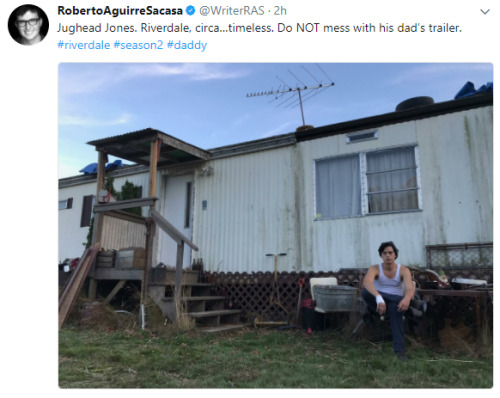
There are just so many damn things to pull out of this image, and some subsequent Googling to legitimate my initial knee-jerk reaction of "oh hello, William Faulkner" just seemed to bring into sharp relief a lot of interesting connections. These ended more as scattered remarks than as a full proper essay, but it still got long, ‘cause I don’t know any other way to be!
So: thoughts about the symbolic aesthetics of this image; class, trash, and “timelessness”; a constellation of classic literature, film, TV, and pop music connections; and ideas about Jughead Jones in S2, below the cut.
@lessoleilscouchants knows her Faulkner much better than I do, and so encapsulated brilliantly a lot of what I was going to say in her own observations about this aesthetic: “a semi-tragic narrative of class warfare, dead yellow grass, weighty history, bare feet on broken steps, useless resistance against the paths set out for them, and a general sense of doom.” I want to also add a theme from Faulkner's short story "Barn Burning": a son agonizing over whether he should remain loyal to his father in the face of that man's repeated crimes. The choice is complicated by the fact that his father's acts of destruction are clearly a form of protest against the family's place in the profoundly inequitable structure of their society. Hellllooooo FP, Jughead, and South Side Serpent feels! (Although I certainly hope that FP does not suffer Ab Snopes’ fate.)
I got to "Barn Burning" from this really great essay about the material culture of trash and waste in Faulkner's work. Jumping back to the campy elements of Riverdale, it certainly made me think about the ways in which we are all “trash” for this “trash show” - but it also made me move more broadly from the materiality of "trash" to remember that Faulkner's Snopeses are generally considered one of the most famous examples of "white trash" in American literature. (I am scare-quoting this term to be clear that I’m not just throwing it out there, but rather am bringing it up to analyze it.) Despite Jughead calling himself "a damaged loner outsider from the wrong side of the tracks" and Cheryl calling him "a hobo," I'm pretty sure that up to this point, no one on Riverdale has actually used a term that would seem to present itself very naturally: "trailer trash." (Again, not just throwing this term out there!)
This absence is interesting, especially considering the (seemingly increasing) importance of FP's trailer as a physical location where important plot points happen (*ahem*), and as a general shorthand for characterizing conflicts between FP and Jughead, the South Side and the North Side, and the issue of class within Riverdale generally.
And so now we get this beautifully composed image, which is just full of elements of entropy and decay and trash, in all the varied and loaded meanings of that term. I’m going to repost for scrolling convenience - many thanks to @musingmola for the original image of the tweet, and @jandjsalmon‘s close-ups.
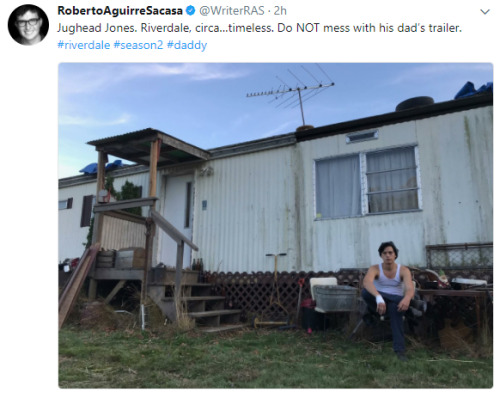
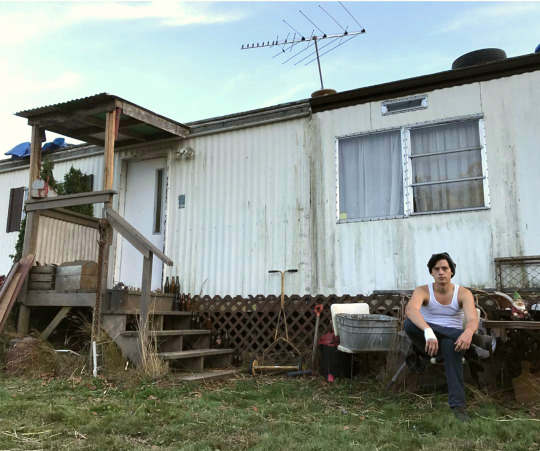
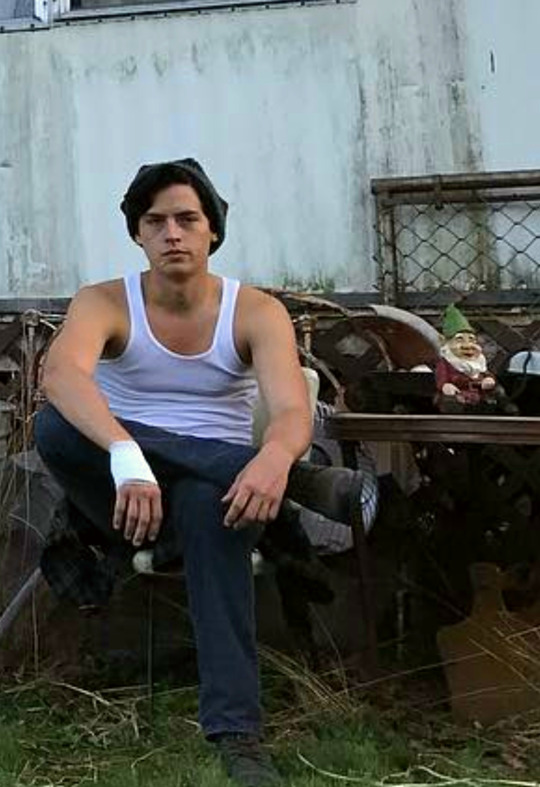
There's the trailer itself, with discoloration of the siding - the old and tilting antenna - the bars on one set of windows (but not both) - the blue tarp on the roof at top left. As we know, this is a decaying and neglected home, both literally and metaphorically.
We have the selection of objects outside the trailer, which seem to have just accumulated there over time - there's that breakdown of order, the rejection of social rules about keeping a neat house. The objects SEEM random - an old hand mower, a washtub, the various scrap metal parts behind Jughead, the garden gnome - and there, too, we have that postmodern fascination with evocative fragmentation, with the potential in trash and pieces.
A quick note on "trailer trash," considered now as an identity category rather than as the actual physical objects surrounding the trailer. Although obviously non-white people can and do live in trailers, "trailer trash" is pretty much interchangeable with "white trash." And "white trash" is first and foremost a distancing term that lays down boundaries to try to contain problematic whiteness - whiteness that is poor, disorderly, violent, ungovernable; whiteness that threatens to disrupt and undermine the typical racialized social hierarchies. (This is not my insight - people like Annalee Newitz and John Hartigan, Jr., and most recently Nancy Isenberg have written much more thoroughly about the history, connotations and function of the term.)
Let’s go for the loudest detail first: that white tank top is such a loaded symbol in this context, you guys. It's SO loaded. We all know what the awful colloquial term for a shirt like that is. I don't totally buy the full explanation for the origins of the term here, but the observation that classic films (like Marlon Brando in A Streetcar Named Desire) cemented its symbolic association with violent, unstable, and I would add a sexualized working-class masculinity, is apt.
(So: RAS commenting on the "timelessness" of this shot? Check. Possibly Jughead reaching into his own store of classic film symbology? Also check. I can’t find the promo image of Jughead in that weird jacket right now, but I want to point out that this isn’t the first Brando aesthetic nod we've gotten for S2. I STILL need to know who the fuck Stefano is!)
That bandaged hand is straight-up evidence of previous violence; that wary look and the tense posture implies the promise of more to come, as needed. I am NOT, of course, suggesting the connotations of the shirt as an explanation for that injured hand in this case! Just observing on the general aura of trouble.
Furthermore. This kid normally lives in layers of clothing, and now we've got him down to that ever-so-symbolic sleeveless top, sitting resignedly outside his family home? Way to underscore the idea that the circumstances of Season 2 are going to strip down all those layers, and make Jughead grapple with who he is, where he comes from, where his loyalties lie, what he's afraid of being underneath it all, etc.
Jughead's fascination with writing and film, particularly auteur film - I'm now thinking about that as a layer of cultural armor against being called "white trash." Like, I don't think it's feigned or anything - but it certainly has the happy side-effect of being a way to forestall those accusations of a lack of culture. He's not TRASH; he's a WEIRDO. He's on the fringes, but that gives him the power of insight that you lack. (I should also point out here that @foresightfromforsythe has been doing this Jughead-as-trash-king analysis piece by piece for months now. Whoever runs that account is brilliant.)
The idea of concealing or revealing your fears about who you are and what you've inherited from your parents, got me thinking about another one of my beloved TV shows, in which the main character creates a new identity that allows him to escape the childhood wounds inflicted by poverty, a troubled, alcoholic father/son relationship, and repeated maternal rejection. And I realized that nearly any time that Don Draper is getting touch with his inner Dick Whitman, white sleeveless undershirts come into play in EXACTLY the same ways I've been talking about above.
Dick Whitman and his “Uncle” Mack:
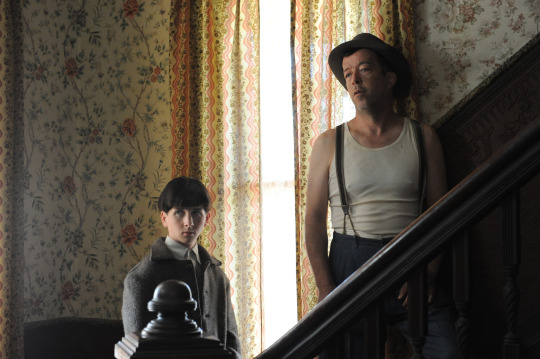
Dick Whitman in the moments leading up to the creation of Don Draper:

And then I got lost in considering the fact that Don Draper's father's name is ACTUALLY ARCHIE; the whole Betty connection; and that in one memorable episode, Don Draper hallucinates about sleeping with a character played by Madchen Amick and then strangling her to death. I don't think that any of that is actually all that useful in reading this image or the direction of Season 2 - I'm not arguing that Jughead is Don Draper - but it sure was fun to think about.
Of course, the connection to Mad Men also gets us to some of the criticism leveled at that show - that it was more in love with its own aesthetic than with exploring the historical issues of the period, and particularly the racial tensions of the 1960s. I'm not going to rehash that debate here, but I *will* observe that Riverdale also loves its aesthetic and has also received some criticism about needing to make its non-white characters more fully realized. There's always the possibility that Season 2 is going to do the "Civil War" storyline in a way that centers mood and aesthetic, which, like, clearly I HOPE IT DOES, but there are ways to do that with more and less heft, you know? I know I'm going to love it one way or the other - for me, it's honestly enough for this show to be Teen Peaks/Maple Syrup Murder Hour, without necessarily saying that it must also be Let Us Now Praise Famous Men. But it's going to be interesting to see just how seriously the showrunners decide to engage with this theme.
Because of course, a predilection for surface-level engagement is another interpretation of the image. For everything that I've just said about trailer trash above, God knows that there is also a certain type of undeniable (and undeniably comfortable) cultural capital in the melancholy aesthetic of rusty metal and decaying trailers and lithe young white men showing off their defined biceps in sleeveless T-shirts. (CS himself also seems to love to play with and remix this aesthetic in his photography and personal aesthetic.) It's the minor-key version of Americana. We might call it, as Everlast does, "White Trash Beautiful."
(Please note: this is the potential departure point for a whole other Current Events meta on the cultural politics of nostalgia and the romanticization of an idealized version of the white working class, which - in short: please make smart and savvy choices, RAS!)
Anyway, now that I've gone and broken the seal on musical connections here, it's time to say that I probably could have just copy/pasted the lyrics to Modest Mouse's "Trailer Trash" here and been done with it. (Here's a great little essay on this song at Pop Matters.)
The ephemeral "trash" of plastic forks and paper plates; the "short love and a long divorce"; calling the people you love "fakes" when they try to compare their trauma with yours, and then realizing that you need them anyway and apologizing as best you can: is there anything more 1x10 Jughead than this? It'll be interesting to see whether it turns out to be S2 Jughead as well.
#riverdale#riverdale season 2#jughead jones#fp jones#william faulkner#mad men#don draper#dick whitman#class in popular culture#the importance of costuming#high culture and low culture#overanalyzing pop culture#overanalyzing everything#one person's trash is another person's treasure#sorry for that pun but come on#riverdale meta#my words#if you made it through this whole thing I love you to bits!
152 notes
·
View notes